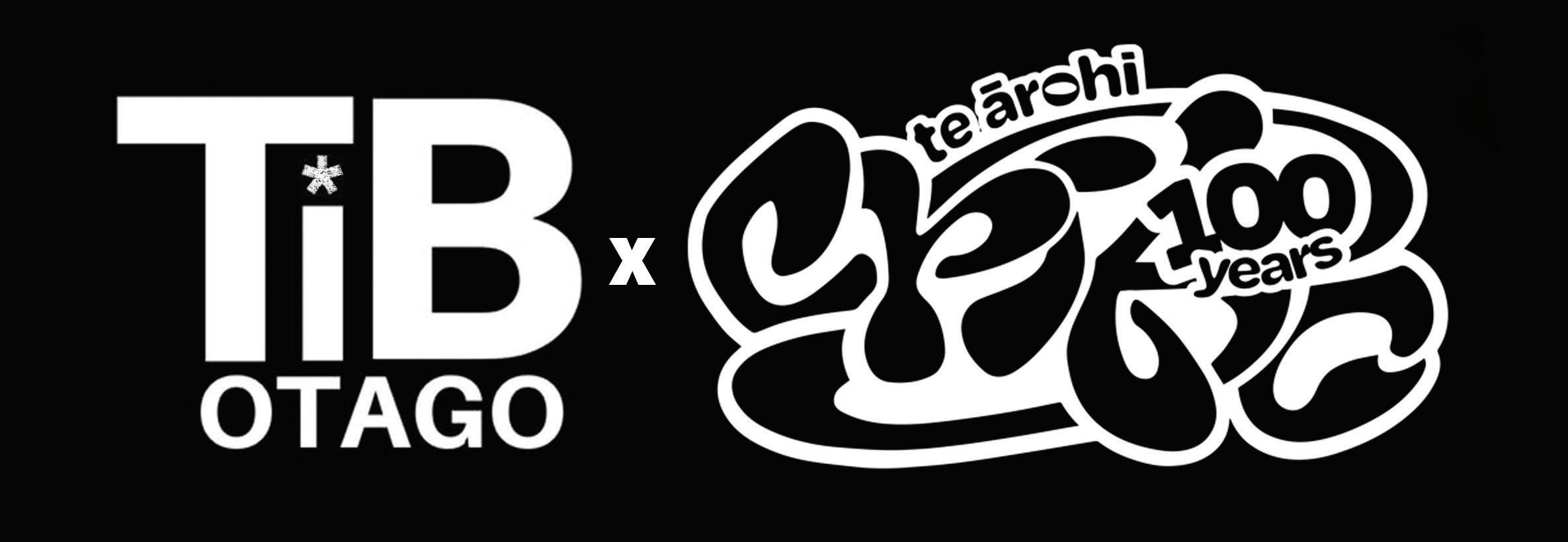

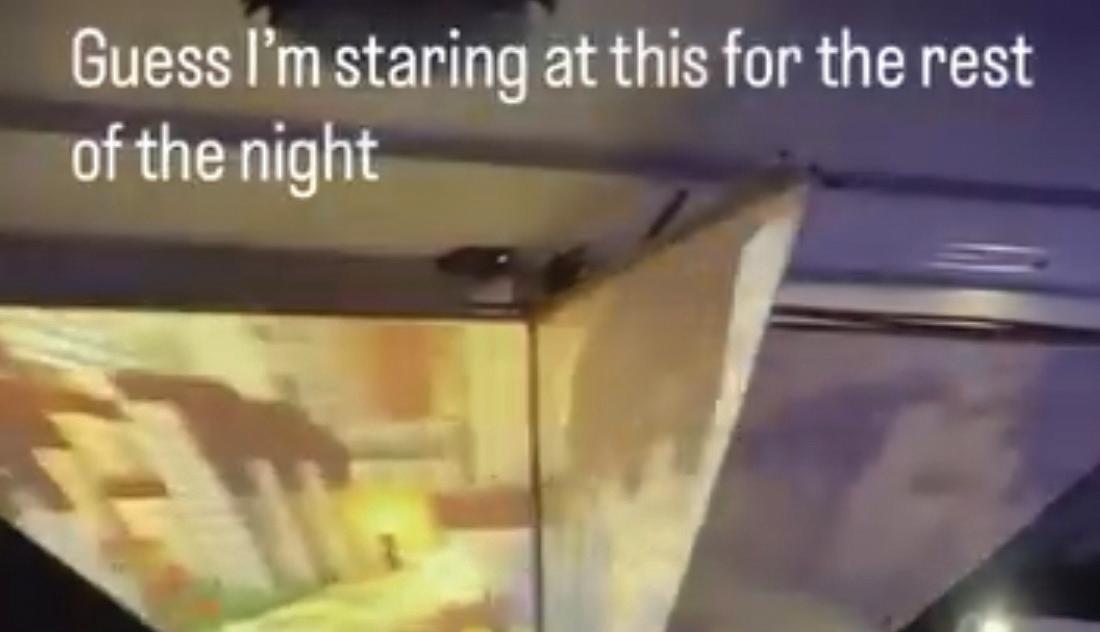




I went to a split-screened rave last week. Picture this: a boiler room on the top floor of The Grand in Wellington. Frothing crowd of mid-20s, sunglasses on (despite the dark) and exposed skin slick with sweat, surrounding the DJ. And above it all, Minecraft and Subway Surfers projected onto an upside-down pyramid protruding from the ceiling, with Steve cutting shapes to DJ Bax’s ‘Gucci Flip Flops’. It happened – casual split-screens are here. Generation Zero are slaves to stimulation. As we spend more time online, flicking through an endless stream of short-form videos that are allowed a split second to hook us before moving onto the next, our attention spans have become more fried than your brain cells in O-Week. There’s hardly a spare moment in the day when we aren’t consuming at least one form of media. You’ll find yourself parked in the lounge, TV on whilst chipping away at an assignment on your laptop, then pausing to answer messages on your phone and inevitably falling into a pit of Instagram Reels once again.
Split-screens have become the norm to retain attention spans. We saw it first with TikToks that split the main video with another video for pure stimulation to make the brain go “brrr” – soap cutting and Subway Surfers are a personal fave. When students returned to lecture theatres after split-screening their way through the pandemic, a Critic writer and self-described TikTok addict (having spent 12 hours a day scrolling at one point) wrote an article prescribing split-screen videos for each degree. This was in acknowledgement of “how difficult it can be to concentrate on lectures after years of having our attention spans fried. Sometimes putting lectures on 2x speed just doesn’t cut it, and our malnourished Zoomer attention spans yearn for even more stimulation.”
In a recent conversation with friends, we despaired over our dwindling attention spans. While at university, one mate used to split-screen Sims and Netflix on her laptop, lecture recording and notes on her monitor. Another says she can’t go a minute in silence, and is always listening to audiobooks as she goes about her day. A third couldn’t fathom the idea of having a shower without listening to music. We ironically quoted TikToks where users wondered what ever happened to just “having a think”. We yearned for an alternate reality of living slowly, taking pleasure in the banality of everyday life.
Making things from scratch or simply rawdogging a walk without headphones and allowing your mind to wander. Phones were checked multiple times during the conversation.
What began as a joke has seeped into reality. Med students aren’t splitting lectures with pimple popping videos just yet – slides depicting anallyinserted foreign object x-rays are entertaining enough – but it seems like we’re getting closer. It was with those same despairing friends that I stared slack-jawed at Subway Surfers last week. Gigs were once a haven for the tactile. It’s the techno equivalent of touching grass: moving your body to the thump of music, holding hands with friends to squeeze through the mosh, and bumping shoulders with sweaty strangers. The one I went to encouraged this – the sign at the entrance to the rave had asked attendees to try and refrain from going on their phones, so my best guess is that the distraction was to stimulate the withdrawals that the phone-addicted masses would’ve been experiencing.
It made me think about how everyone’s equally enchanted and freaked out by the advancement of AI. We’ll gather around a mate’s laptop and enter prompts for Chris Luxon riding the steps of the Beehive on a moa or some shit, or ask ChatGPT to come up with the best pick-up lines. Then we’ll also bite our nails over the implications of AI on our job prospects and how rapidly it’s outpacing legislation. It’s fun. It’s scary. I was mesmerised by Minecraft parkour while having a quiet existential crisis in the back of my alcohol-addled mind. That said, if you’re hosting at your flat and want to make sure the crowd doesn’t grow bored and move onto the next best thing, just chuck Minecraft Steve on your TV. Works a treat.
NINA BROWN

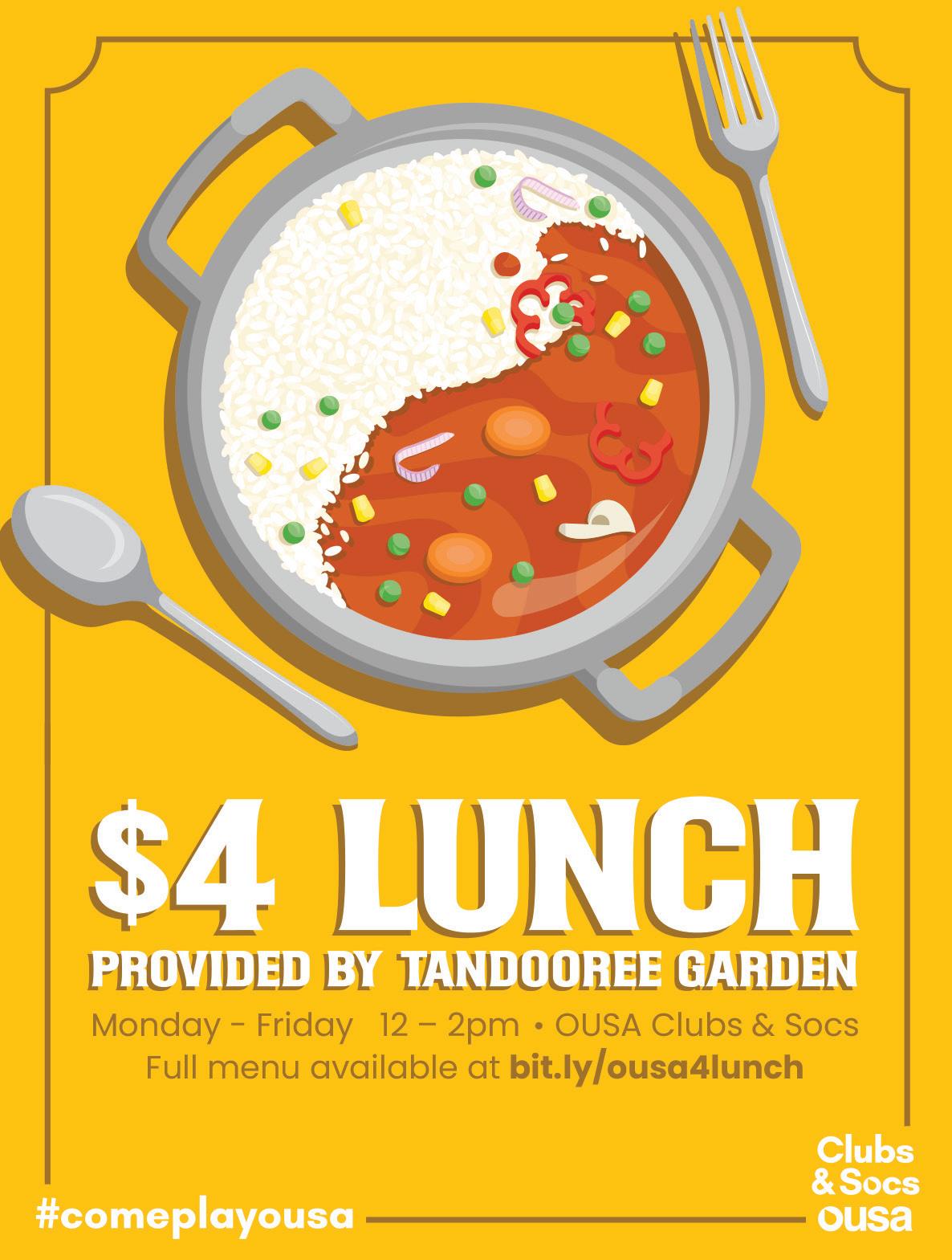

In the recent Critic Census, where Critic reveals a quorum of Critic readers are single virgins it came to my attention that the AI free publication was using AI to take a crack at data analytics. Does Critic, the proudly AI free magazine stand by this decision to use AI in place of single, virgin statistics students?
Concerned
Editor’s response: Yes, I do stand by it. First, AI was only used to confirm hunches and make calculations, which were then checked manually. Second, all the single virgin statistics students were having a well-deserved semester break while I learned how to use Google sheets via Youtube tutorials, otherwise I would have happily employed their help
Send letters to the editor to critic@critic.co.nz to be in to win a $25 UBS voucher.
Helloooo
I hope you’re all doing well.
I was flicking through OUSA’s Art Comp this year, but… no Visual Arts Competition? Is it gone for good, or just hiding somewhere in the office under a pile of half-written horoscopes and empty V cans?
Digital art is amazing. Don’t get me wrong. You can undo mistakes, it’s tidy and efficient, and there’s absolutely no risk of drinking your brush water by accident. But it also misses something: there’s no slightly wonky but heartfelt creation, no inkstained fingers to wave around as proof you’ve suffered for your art (no having to explain to your flatmates why the shower tiles are suddenly part of a mural). It’s messy, imperfect, and deeply human — and it’s such an important way to free our minds from the constant pull of technology.
In other news, has it run off to keep Richardson’s 1980s design award company?
Cheers,
Anon (supporter of electronic art)
Editor’s response: Love the visual arts love! You’re thinking of the OUSA exhibition where students can sell art, which is still happily running
hello dearest ms.critic,
please can everybody shut the fuck up in my beloved marsh study center. i dont care who you hooked up with on the weekend, i just want to do my flashcards in peace. alternatively go downstairs to have a goss.
lots of love xoxo, #1 marsh fan
Editor’s response: I want everyone to know that the subject line was ‘pressing issue’, and indeed it is
Letters should be 150 words or fewer. The deadline is Thursday at 5pm. Get them into Critic by emailing us at critic@critic.co.nz. Letters of a serious nature directly addressing a specific group or individual will not be published under a pseudonym, except in extraordinary circumstances as negotiated with the Editor. Critic Te Ārohi reserves the right to edit, abridge, or decline letters without explanation. Frequently published correspondents in particular may find their letters abridged or excluded. Defamatory or otherwise illegal material will not be printed. We don’t fix the spelling or grammar in letters. If a letter writer looks stupid, it’s because they are.
Waikato University’s new graduate-entry medical school, focusing on primary care and rural health, is set to open in 2028 with 120 places per year following government approval of the project
Plans to demolish Archway Lecture Theatres have been foiled, after being granted heritage protections by the Dunedin City Council.
Nurses around the motu are going on strike for 24 hours, between the 31st July and 1st of August. They are striking for better pay and working conditions, as hiring freezes and cost of living concerns are driving nurses to Australia.
The New Zealand International Film Festival kicks off this week on the 31st July. Tickets are available online for Dunedin screenings, lasting through to the 10th of September
Ngātiki Taylor has resigned from his Co-Tumuaki position with Te Rōpū Māori to concentrate on his busy study schedule. Porourangi will be sole Tumuaki for the rest of the year.
A vape product, Suntree –Vanilla Cream vape liquid, has been recalled after a warning was issued from the Ministry of Health associating it with ‘popcorn lung’. According to 1News, 300 of the product have been sold in the last 17 months, and anyone in possession is advised to “immediately stop using it”
Blackboard is getting replaced next year by a new learning management system, called Brightspace
Entries close for the OUSA Photo Comp, Electronic Arts Comp and Poetry Comp on August 1st
OUSSC are hosting a secondhand snow gear sale for sustainable shredders on August 2nd from 12pm-6:30pm at the OUSA Clubs and Socs Otago Room. Students looking to sell are welcome to drop gear on August 1st at the Jonsey dance room during the same hours – you set the price, OUSSC takes 20%
Freshers Unhappy with Halls’ New Allergen Management 6
Carrington Flood Refugees Flee to Toroa 7
Minion Rave Reviewed: Where were all the babois? 8
Students Caress Mountain to Win Free Stuff 9 Uni SCRAMBLES to Find POPH192 Tutors 10
Choose Your Own Adventure: OUSA President Edition 14 Online Anonymous: A support group for the chronically online 20
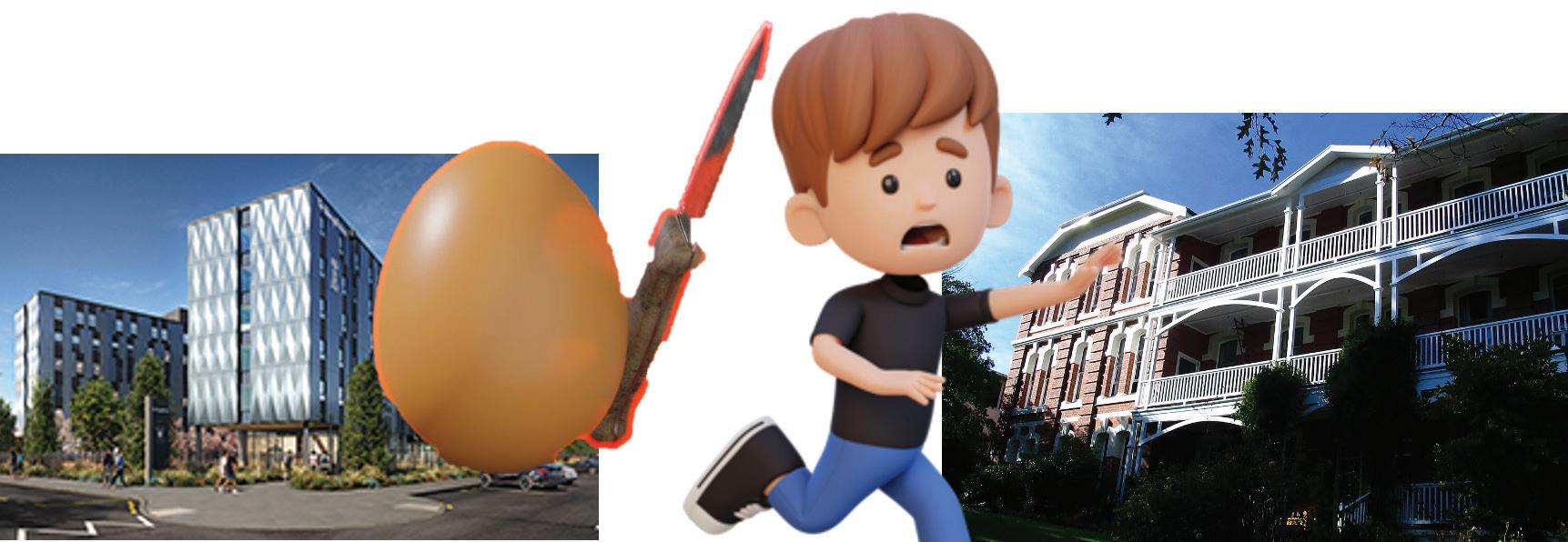
I’d be pissed if I had to go to St Marg’s, too
Following an allergen mishap at Te Rangihīroa, the Ministry of Primary Industries (MPI) has launched an investigation into halls’ food allergen management procedures. All colleges have now rejigged their allergen management systems, which some say are for the better, and others say for worse.
On June 6th, a resident at Te Rangihīroa College with an egg allergy ate a slice of cake that was mistakenly labelled as eggfree. Otago University’s acting Chief Operating Officer (COO) Jared Hayes told the ODT following the incident that the University accepted blame, calling the situation "very disappointing and regrettable”.
MPI initially prevented Te Rangihīroa's kitchen from catering to students with allergies, instead redirecting breakfast, lunch, and dinner to be served to these students from St Margaret's College, with a van being scheduled to transport students during meal times. Regulations and procedures are constantly being changed behind the scenes. So enjoy the show as we watch the University throw a bunch of shit at the wall and see what sticks.
One allergy-prone resident at Te Rangihīroa, Synthia,* told Critic that she didn’t bother making use of the bus service. Students with dietary requirements were given the option to pick up their meals from inside Te Rangihīroa, which was “more convenient”, as Synthia was busy locking in for exams at the time. She said it made it easier to eat while studying because sitting in the dining hall was a "waste of time.” Lesson learnt: don’t interrupt Synthia's rise and grind.
By Ali G. Contributor // news@critic.co.nz
eating from the chef-plated meals, calling it "very tiring and quite anxiety inducing."
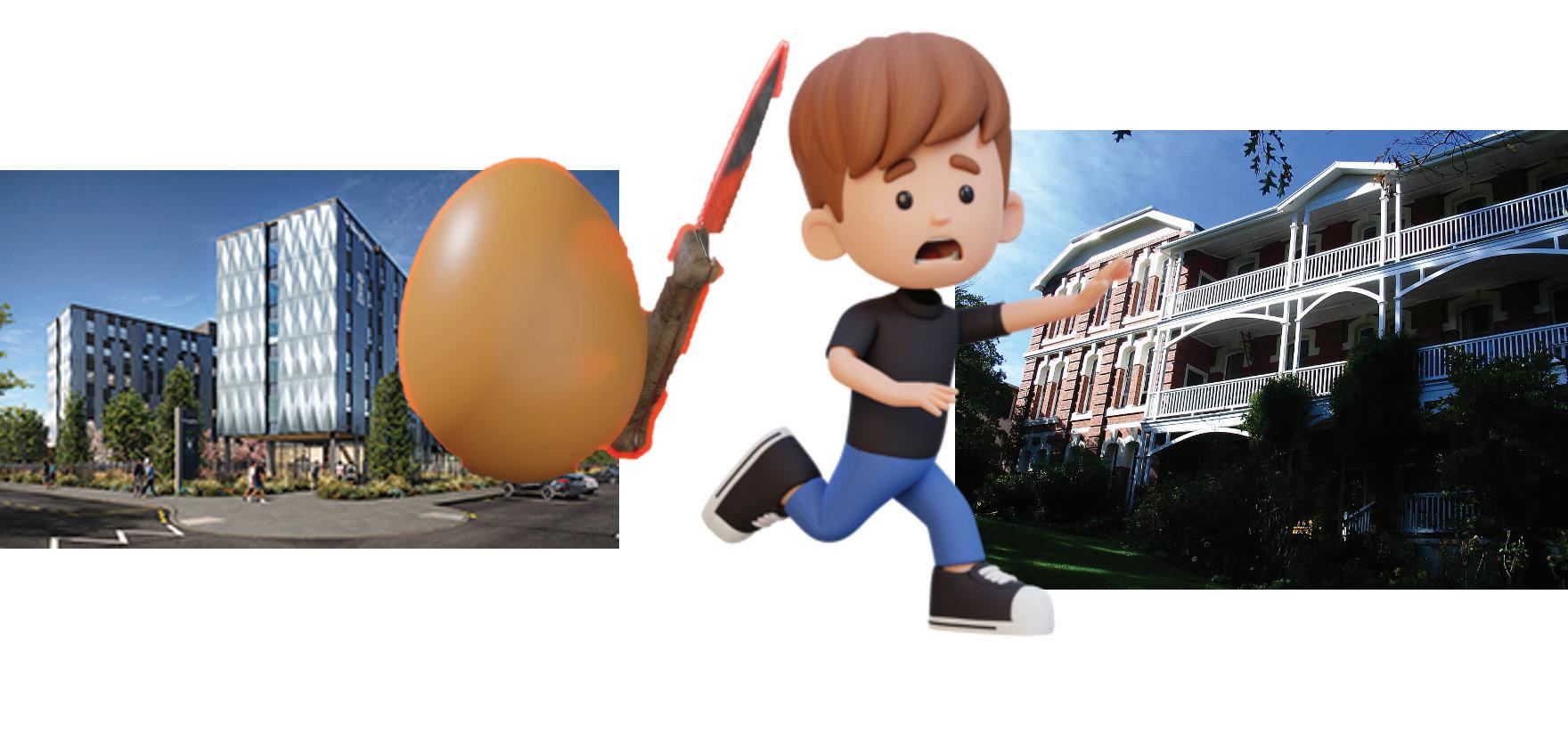
Hayes told Critic that the University is “not aware of any students who have been served a chef-plated meal that has not met their [dietary] requirements.” He believes that students should feel safe eating chef-plated meals, and this is a priority for the University. He asks that Imogen or any other students facing a similar issue “make contact directly with their food service manager at their college to discuss – this ensures we can understand their needs and respond appropriately.”
Frances*, another resident at a University college with dietary requirements, tells Critic that she doesn't pick up her chef-plated meal. Despite her allergy she still uses the buffet, saying that she likes ”to have a choice.” She says the chefs end up putting things on her dietary plate she “wouldn’t choose to eat anyway.” Yeah, fuck cabbage!
Frances also wants the University to bring the allergen labels back, so she knows what she is eating – you never know what mystery meats are being served these days, after all. This sentiment is shared by Stephanie*, a hall kitchen staff member, who thinks it's “just nice” to know what food is being served, “even if you don’t have an allergy.”
These restrictions have now been lifted, with a new policy in place that all University-owned colleges will stop displaying allergen cards alongside each dish by the chef who prepared the meal. These cards would let residents know if the dish contained any allergens, meat or alcohol. COO Hayes told Critic that this was one of MPI's directives. Instead of the allergy cards, students with dietary requirements are now advised to speak to a kitchen staff member during meal times to receive an individually-plated meal.
Imogen*, a resident at another University-owned college who has an allergy, told Critic that one and a half weeks after her hall implemented the new procedures, she got allergen-spiked in a chef-plated meal. Imogen reckoned that she had found this allergen in her meals multiple times before the new procedures were introduced. This was an issue which she claims to have repeatedly brought up to senior management.
Imogen compared eating dinner at her hall to a “little game of Russian Roulette”. She said that she doesn't feel particularly safe
Students with allergies are asked to sign a Student Allergy Declaration Form, which outlines the kitchen procedures. It assures that "Allergens statements [will be] displayed for each meal containing a known allergen." Critic asked why the University is not upholding this promise. Hayes responded, “Due to the directive made by MPI, residents have been advised of the changes and the forms will be updated in due course.”
Hayes told Critic that the University has not struggled to accurately label dishes in the past. He boasts that the University catering service provides more than two million meals annually, and they have “robust systems” in place to support students with food allergies and special dietary needs. “We are continually refining those systems to meet evolving expectations and regulations.”
Hayes says that the University does not intend to bring the labels back when the MPI investigation concludes. So it looks like this shit might just stick.
*Names changed
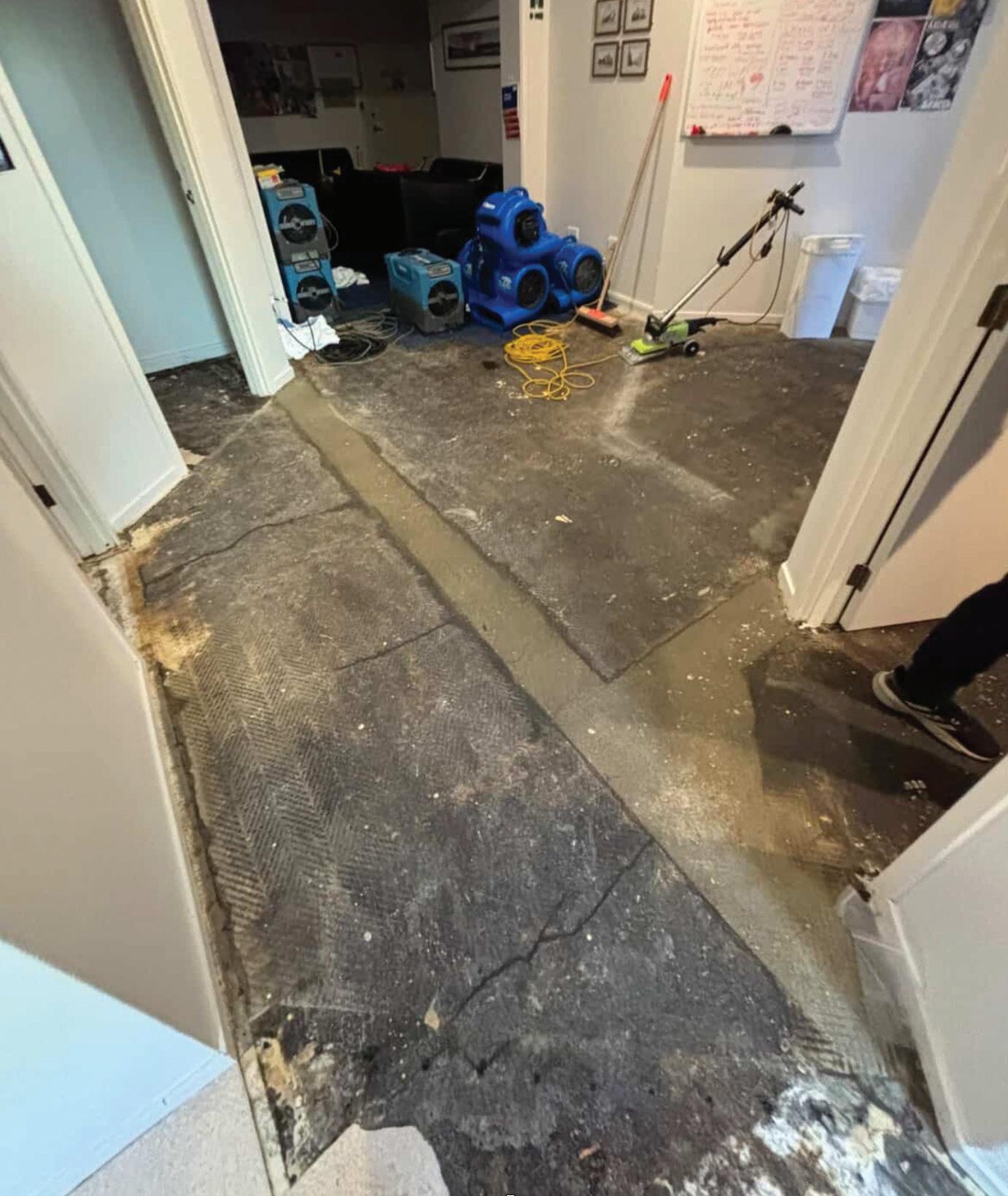
“Now that I think about it, there has been actually quite a lot
Carrington residents of Dawson House spent last week in Toroa College after a flooding incident which saw two floors of the building seeped in sewage. The University confirmed to Critic that the culprit flushed paper towels down a toilet, soiling fourteen freshers’ rooms. In other news, Toroa College residents are celebrating the fact that they’ve finally hit double-digits.
The incident in Dawson House was first noticed on the morning of the 18th of July when a resident returned late after their Thirsty Thursday shenanigans. Speaking on behalf of her mate who was first to the scene, fellow Carrington College resident Imogen told Critic that the incident was “a bit of a clusterfuck.” Imogen explained that her mate had tried to go to sleep after noticing the toilets leaking (sorry we outed you) but that “it was leaking down into her room […] they started stripping her carpet, it was absolutely mental […] she basically got no sleep”.
In a statement provided to Critic Te Ārohi by Acting Chief Operating Officer Jared Hayes, he said, “Paper towels were flushed down a toilet, causing a wastewater pipe to fail in Dawson House in the early hours of Friday, July 18.” Luckily, it looks like no damage was done to the Dawsonites’ belongings, with the University saying, “We are not aware of any damage to personal belongings at this stage.”
Residents initially told Critic that they had been told that the Dawson crew would be able to return to their rooms on Wednesday the 23rd of July. Plans have appeared to change since then though, with Hayes explaining that the 14 affected residents are currently staying at Toroa College until new carpet arrives and is laid. “We anticipate a staggered return over the next four weeks, depending on the impact on their room and/or the floor they live on.”
The University wasn’t afraid to dunk on students blocking the toilets either, saying, “This user error occurred despite notices placed in toilets about not flushing such materials.” The error in question being a barrage of sewage waste.
The flooding in Dawson is one of a series of alleged floods which have plagued Carrington College residents throughout the year. The dining hall reportedly flooded last semester, where for a few
of floods”
By Hugh Askerud Contributor // news@critic.co.nz
days residents got to eat their kai to the sounds of industrial dryer on top of soggy carpet. The University also confirmed this, saying that the earlier incident in the dining hall kitchen was the result of a hose beneath a washtub sink becoming dislodged and is “unrelated to the Dawson House incident”.
OUSA’s Residential Rep Callum Hadlow told Critic Te Ārohi, “This sort of malfunction is happening across the halls, even in the new ones like Te Rangihīroa which had some issues earlier in the year.” The news of floods isn’t getting in the way of normal hall life, though, with tauira still taking the chance to diss other houses around Carrington – Jenkins in particular. The lower-ground floor of Jenkins is colloquially known as ‘The Dungeon’ and one ground floor resident Ana* commented, “Top floor Jenkins is a bad space, but also bottom floor […] actually pretty much only the (upper) ground floor is good.” Neighbourly love is frail in Jenkins.
In Dawson, however, residents are just keen to get back home. One Carrington College resident Jude* summed up the general feeling by saying, “It kinda sucks that they have to come up here for meals but that’s all I think about it really.” While some residents are seeing the flooding as a minor inconvenience, other students and Callum are warning that it is a sign of things to come as the University grapples with its new financial status and looks to cut corners where it can. Residents stressed, however, the unfailing good vibes at Carrington. “We do love it here though!” Bea* stressed after unveiling the sins of Jenkins.
The one solace for displaced Dawson House residents is they no longer have to slide down the icy hill to lectures from their ground-level refuge at Toroa. Hayes reassured, “The affected residents remain part of the Carrington community and are continuing to receive the same services and access to college life, including tutorials, college events, and the social and intercollege competition [...] They do, however, have to walk a couple of hundred metres from Toroa to get their meals in the Carrington dining room.” Chances are there’s been a surge of UberEats orders to Toroa in the meantime.
*Names changed

Stealing the moon instead of a pint glass from U-Bar for a change
OUSA was reaching for the moon for the Friday of Re: Ori, hosting a Minion-themed boiler room at U-Bar. Critic Te Ārohi was more than happy to go bananas and review the event – only to be greeted by a desolate dance floor. There were like 20 people there.
Of the OUSA-run Re: Ori events, ‘Despicable Beats: Minion Boiler Room’ reportedly had the most tickets sold. Unfortunately though, it also had the most no-shows of the week. Critic rocked up at the peak of the crowds just past 10pm, and the numbers only dwindled from there. We counted eight by 11:12pm.
U-Bar was well set up for a boiler room, with the typical stage swapped out for a central DJ table. A big upside to the lack of crowds was the lack of sweat and, in a U-Bar first, the floor did not appear to be sticky in the slightest.
Complimentary glow sticks proved popular with attendees. A good majority of the crowd channelled their inner Minion and dressed up for the event. Alongside the many Minions were a few Grus, his kids, and even a few inflatable bananas.
On offer as well were banana cream shots. Vodka, banana liqueur, and a hearty pile of whipped cream were served in shot glasses. The closest thing to food on a night out, the whipped cream provided much needed sustenance to keep the dance floor pumping. The bar staff were (as always) friendly and keen to say “bello” to attendees.
The DJs of the night brought the energy, both dressing up in Minion-esque drip. The music was a genre-bending experience, from house to DnB, and a few pop bangers thrown in between. A
By Hanna Varrs, Gryffin Blockley and Maddy Barnes Features Editor, News Editor, Contributor // news@critic.co.nz
highlight of the night for Critic staff was the mixing of ‘Baddadan’ and the ‘Chicken Song’ together.
However, there was a notable lack of Minion-themed tracks to keep the vibes Despicable. Minion bangers such as ‘I Swear’, the Despicable Me theme, ‘YMCA’, and ‘Happy’ would’ve undoubtedly made the sparse crowd go feral. But there was nothing. Ba-nana.
Everything about the event was well organised, but it was just a case of bad timing. With promising ticket sales, an ideal U-Bar set up, and the hard work of OUSA events staff, it had all the potential to be a massive send. Unfortunately, though, the Friday night of Re: Ori is just not ideal for a DJ event.
Perhaps the only organisational hiccup was that Despicable was misspelt on the promotional poster, with “Descpicable Beats" being chucked in instead. Critic gets it, spell-check certainly has been useful in making sure we actually know how to spell despicable while writing up this review.
With Castle’s biggest nights always being Friday and Saturday night, it’s a hard ask to get students who froth DJ events to show up anywhere else. Especially a ticketed event. A Monday or Tuesday night slot on the Ori’ roster could’ve yielded a far better turn-out with the ticket sales that were accomplished.
Fingers crossed this isn’t the last boiler room event U-Bar sees for the time being – it has the potential to be an absolutely gru-some night on the dance floor. The ball is now in Studentville’s court; don’t ever make the Minions dance alone ever again. Poppaye!

Huge opportunity for the unemployed
With over $10k worth of prizes to be won, Radio One’s Re: Ori’ Marathon Mountain event was a huge success, with the winner managing to hold onto a paper mache mountain for over seven hours. The mountain was reportedly the only thing in North D that students had a tighter grip on than their vapes.
Set in the Main Common Room on Wednesday the 16th of July, a gargantuan mountain took over the space for the mid Re-O shenanigans. Plenty of festival season frothers showed up, eager for the chance to earn some free tickets to Snow Machine later in September.
Lily Knowles, Promotions Manager for Radio One, yarned with Critic Te Ārohi about the inspiration for the event, which had a mountainous increase in scale for 2025. Lily explained, “In previous years we do a winter weekend giveaway, which has just been like an online giveaway.” Prizes included ski passes, gear hire, and other essentials for a Wānaka or Queenstown mish.
Things got juicy when Snow Machine, a Queenstown-based ski-party-meets-music-festival, got on board for a giveaway. Radio One’s Music Director Logan Edwards mentioned the idea of putting your hand on something and keeping it there. And just like that, a (literal) mountain of ideas began to form.
Kristina, Radio One’s Station Manager, put in eight days of construction mahi to realise Lily and Logan’s vision. Intricately crafted from polystyrene, PVA, recycled Critics, balls of fluff and miniature skiing figures, the mountain was a sight to behold. While not as high as Coronet Peak, the mountain easily dwarfed the height of most students. Plus there was an avalanche of paperwork, too.
The day came and a large crowd gathered, definitely not through R1 kidnapping people off campus. The event started at 9:30am, but unsurprisingly people who were actually on campus that early
By Stella Weston Staff Writer // news@critic.co.nz
during Re: Ori weren’t up for a bit of fun. By 11:30am, however, participants and a crowd of 30-40 nosy onlookers gathered in the Main Common Room for the fun – a bit of après-lectures, if you will.
They whittled down the number of potential winners through a series of competitions. Side quests included musical chairs – which Radio One staff said “got a little bit vicious” – and a onefooted standing competition. They ended this after a girl got out who had hit legs the night before – they felt that they were “being dicks and just bullying them at that point.”
Down to the last two on the mountain and the negotiations began when one realised they couldn’t actually go to the festival they were about to win passes for. Instead they called up the person who had come third, offered them the second prize, and took their hands off. “Everyone felt really good, it was just really wholesome.” The winner lasted seven hours, taking out a four day pass to Snow Machine, four days of snow passes and bungee passes, and more.
Logan was very proud of the event. “I am formally copyrighting this idea and I don’t wanna hear anything about Mr Beast or have anyone accuse me of outsourcing genius.” Lily, however, did want to note that this concept was not new, and money-hungry people wanting to win shit have touched random stuff for hours for decades now. “Yeah. It's an old school radio thing – people can go watch That ‘70s Show.”
With the winner reportedly entering any-and-all competitions for Snow Machine tickets, the mosh will be sure to welcome someone who got their ticket through pure grit and patience. Since the competition, the mountain now lives at OUSA reception at campus. Fingers crossed it doesn’t melt under the LED office lights.
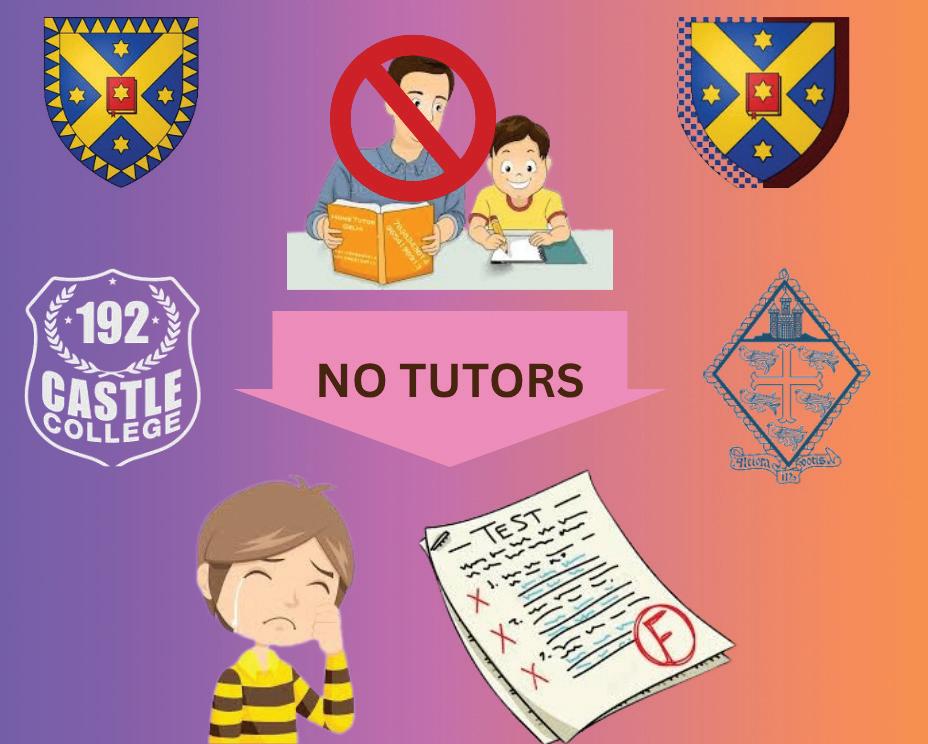
Health Sciences First Year (HSFY) students are panicking – and it's not about if they will get into Med for a change. This time, it’s because there are no tutors to help them get the grades. St Marg’s, Arana, Hayward and 192 Castle College were all without POPH192 tutors at the start of Semester Two, leaving many Med and Dent hopefuls having to fend for themselves in the subject that can famously make or break their meticulous 10-year plans.
POPH192 (Population Health) is a notorious core paper in the HSFY schedule. Critic Te Ārohi has heard that is one of the “easier” subjects on the roster but, ironically, it’s also one of the easiest to fuck up. Many students rely on the extra hall tutorials, which are advertised as a benefit of staying in a residential college, to decode the notorious paper. Instead of the strict regime of numbers and random combinations of letters (or whatever science is supposed to be about) POPH192 takes the crowning achievement of mandating the only written essay of all the HSFY papers. Without these tutorials, some may say they are up Shit Creek without a paddle.
Sources have confirmed to Critic that attempts to recruit former POPH students or older Health Sci students had fallen through, largely due to the confusing structure of the paper and an already small tutor pool. Sam*, a Med student who has tutored for Otago residential colleges for four semesters, says the scramble was obvious: “I received emails from both [Hayward and St Margaret’s] within the past week asking if I would be their POPH tutor — again. I’ve been offered the role at least three separate times. They’ve asked me to ask around Med School too. They’re clearly desperate.” Oh, woe.
So why don’t tutors want to take on POPH192? “It’s the lectures,” said Sam. “They don’t have clear objectives. Most tutorials are built around helping students break down those objectives — but with POPH, we don’t know what’s important. The lecturers say anything on the slide, even a random image in the corner, could show up in the exam. So how are we supposed to guide students when we don’t even know what to focus on?”
Another factor is the fear of being associated with a paper known for its high failure rates, with over 300 students failing POPH192
By Molly Smith-Soppet Staff Writer // news@critic.co.nz
last year. One of POPH192’s learning outcomes is to “appreciate the complexity of health and well-being”, which requires a high degree of empathy (hard to come by in the HSFY cohort fond of burning each others’ notes). “When I was offered a role again this year, they looked at how my students did last year. Student pass rates impact whether you get hired again — or even whether they’ll pay you more. So if I think I can’t do a good job because the paper’s a mess, I don’t want to take it on and risk looking like a bad tutor.”
Meanwhile, the University of Waikato is inching closer to opening Aotearoa’s third medical school, after Otago and the University of Auckland. With government support growing, the project has just been green lit – meaning Otago and Auckland’s longheld monopoly over medicine may be donezo. With the cost of residential colleges increasing every year, there is worry that many students won't be able to afford the price tag that comes with studying at Otago – especially when basic academic support like tutoring isn't being delivered. As one student put it, “We’re paying a fuck tonne for a ‘prestigious’ university experience, but there’s nothing prestigious about having to hire an outside tutor because the Uni can’t get anyone.”
In response to questions, Senior Warden of Colleges Ruben Katigbak confirmed that 192 Castle and Hayward (which collaborate on tutorials) have “recently appointed a tutor for POPH192, scheduled to begin work this coming Sunday, 27 July. Arana College had a tutor ready for onboarding who withdrew at the last minute, so we are still seeking to appoint there.” He added, “We cannot speak on behalf of St Margaret’s College, which is an affiliated college and not owned by the University.”
POPH192’s reputation as a silent killer of GPAs is being whispered a bit louder in the residential colleges this year. With a slow start to the semester for many colleges, it’s good the tutoring problems mostly got resolved at the last minute. Who knows for next year though – there’s only so many students who can get traumatised by that pesky essay.
*Name changed

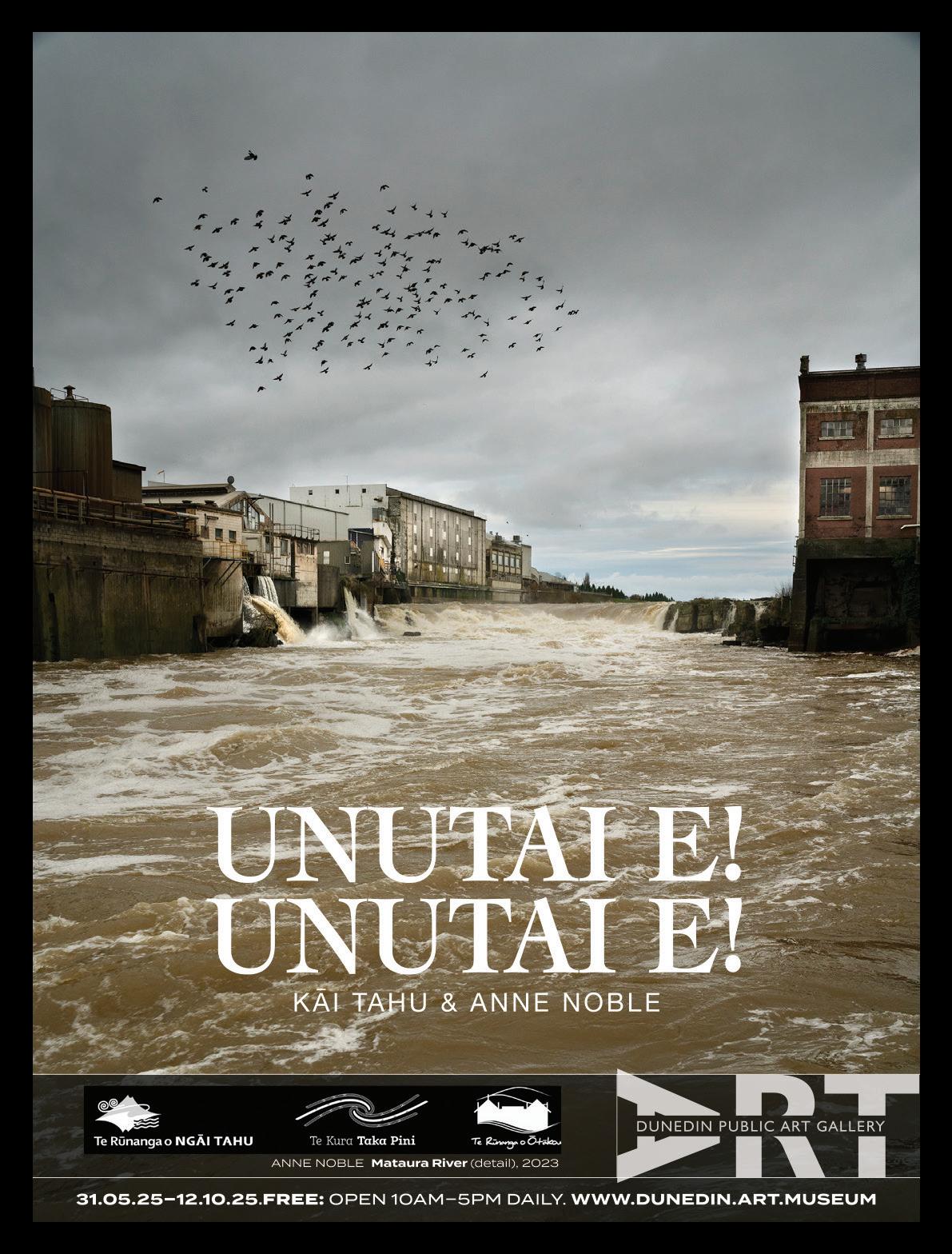
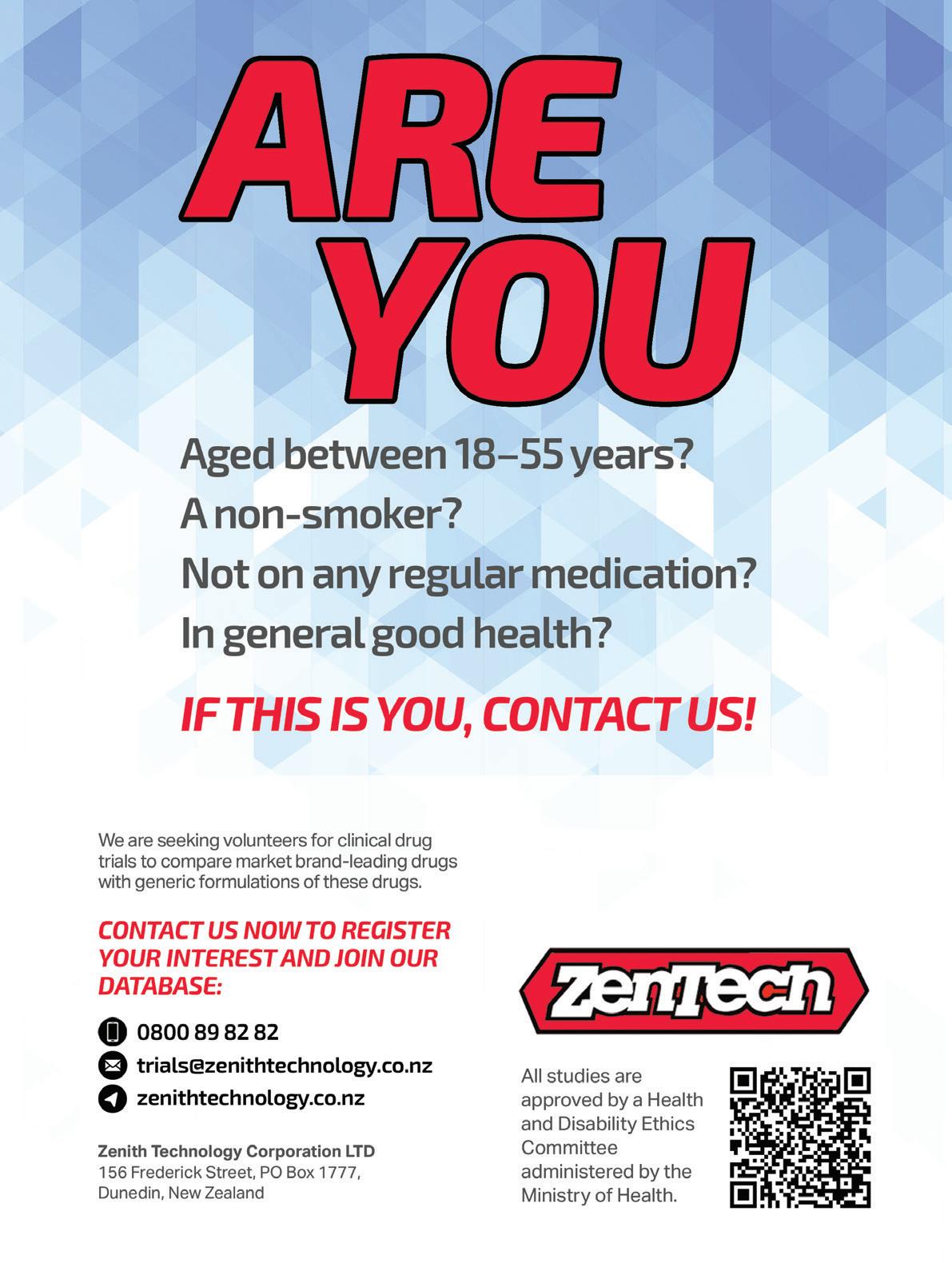







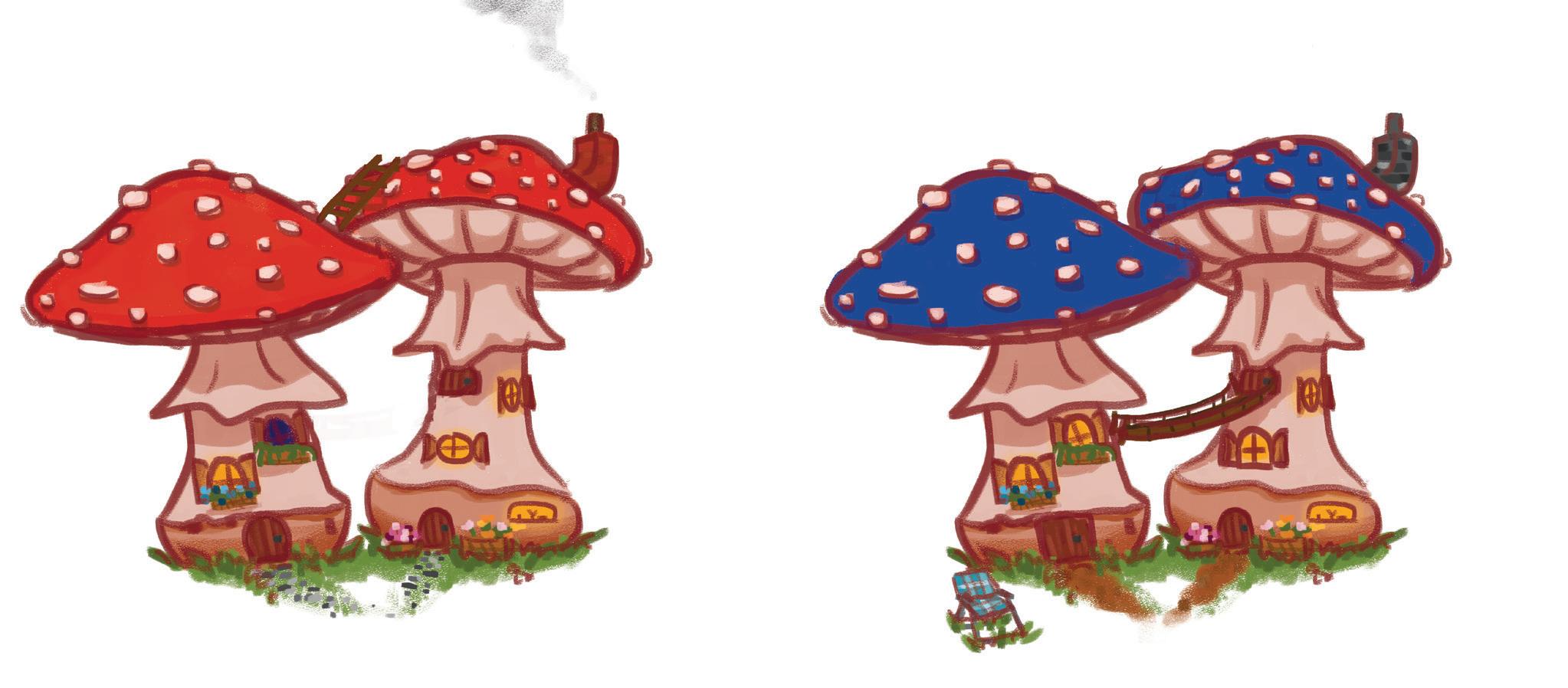

By Molly Smith-Soppet
1. You wake up, wrapped up in a duck-down comforter with that gorgeous OUSA green burned into your eyelids. It's time to take on your busy day. You leap out of bed and go down to your kitchen to pour yourself a big bowl of Weet-Bix. What do you do while you eat your meal?
A) Open your emails and try to get on top of those tasks. (Go to 2)
B) Plan your outfit of the day. You’re a public figure after all. (Go to 3)
C) Read the latest issue of Critic Te Ārohi (AKA NZ’s best student mag). (Go to 4)
2. You open your laptop, hoping to find an empty inbox. Unfortunately, it's blinking red with 385 unread emails. What do you do?
A) Skim read them and reply to the ones that sound interesting enough to not bore you back to sleep.
B) Delete them all. If it's really important, they’ll surely send a follow-up email. (Go to 6)
C) Draft a vague “sorry for the delay” email and BCC other Exec members in. You can deal with that later.
3. As President of Otago's best student association, you know you always need to put your best foot forward, so that's why you always have the most stylish outfits. What are you wearing today?
A) A dark green blazer paired with the best Christmas present that Donna, OUSA’s Secretary, got you: green, Shrek-themed Crocs. (Go to 8)
B) A checkered button-down slung over your coolest Lululemon outfit. You never know what the marketing team may try to get you to do for Instagram today. 9)
C) Radio One tee, Levi jeans, and beautifully styled hair. Your outfits always give 100%, just like you give to your student constituents. (Go to 10)
4. Opening the Critic website, you see a blinding red headline: ‘OUSA President signs off $130,000 – without telling the Exec?’ This is NOT GOOD. Panicking, you…
about it. (Go to 13)
B) Ignore it, just like you ignore your overflowing waste paper bin. (Go to 14)
C) Panic and forward it to Donna (OUSA’s Secretary) to see if you can really fit it in between council meetings and budget calls. (Go to 15)
6. You delete all your emails. Your inbox is clean, but your conscience is not.
A) Use this free time to have a “breakfast” meeting with

A) Jump over to your emails to see if you can find anything about this scandal in there. (Go to 2)
B) Text the Critic editor and ask if they're mad at you. (Go to 11)
C) Post an Insta story trying to pin the blame on anyone but yourself. (Go to 12)
5. You skim the emails with the speed of a seasoned office temp. Most are from clubs asking for money; your Admin Vice President scheduling another meeting with Vice Chancellor Grant Robertson; and a Critic reporter wondering when students can expect the next sausage sizzle to be. One stands out: it's from your old high school inviting you to give a speech inspiring the next generation. You're probably too busy but the chance to go back makes you fizz. What do you do?

A) Reply “keen!” then book the cheapest flight and forget

7. You send your blanket BCC and slam your laptop closed. Problem solved… for now. What's next on the agenda?
A) First, a campus wander to see if the Leith is still smelling fresh and clean. Second, checking the condition of OUSA branding around campus (it's still the most blinding green you have ever seen). (Go to 17)
B) Scroll social media to see if anything scandalous has been posted on the ‘UoO Meaningful Confessions’ Facebook page. (Go to 19)
C) Go back to bed. You’re not paid enough for this. (Go to EA)
8. Shrek Crocs are a hit, even if they do squelch as you walk through the corridor into the Link. Onto the next thing.
A) Time to attend an Exec meeting. You're twenty minutes late, but at least you’ve got your Precinct coffee, complete with a candied popcorn treat (you deserve it). (Go to 20)
B) Stop by Radio One to announce a new campaign! You want to create a grown-ups’ playground on Union Lawn to “blow off some steam” between lectures. (Go to 21)
9. Your Lululemon fit was a great choice. Marketing has roped you into doing a few TikTok dances – your favourite!
A) You absolutely eat it up. The TikTok gets 3,000 likes in two hours. You're a star! (Go to 22)
B) You are a bit clumsy and trip over your Residential Rep while attempting to do a full body ‘woah’. (Go to EB)
10. Your outfit gets a LOT of compliments. Someone stops to tell you they “love your shirt!” You get chatting and they end up inviting you to a Swiftie Club event.
A) Accept the offer and go have an amazing time jamming out to ‘Fearless’. (Go to 23)
B) Politely decline in favour of scoping out some $4 lunch, but let them know that your Welfare Rep is a big fan of Taylor. (Go to 17)
11. You text the editor “do you think that new article is bad press? :( ”. They reply, “Yes.” FUCK. Damage control time. (Go to 3)
12. You post a cunty picture of yourself looking very official with the caption, “Not my fault, lol!” Your DMs are flooded within ten minutes.
A) You go on DND and cry #emohours. (Go to EC)
B) You decide to double down and hold a listening party for ‘Fearless’ the album coz that's what you are: fearless. (Go to 23)
13. You forget the speech and only remember on your way to the airport. The plane lands, you still have nothing, and so you improvise and talk about the power of joining clubs in first year. The teens are bored to sleep. (Go to ED)
14. You miss the opportunity but instead decide to spend the morning crafting the perfect outfit to wear to the Tea Appreciation Society luncheon. (Go to 10)
15. Donna replies, “It's up to you. It's a great opportunity but you do have a few big meetings today.” Damn. (Go to 6)
16. Your FSO really enjoyed the free breakfast and also loved your pitch for an OUSA-run cafe, and has agreed to help scrape the barrel for some funding to see if you can get it off the ground. (Go to 24)
17. You get stopped by students playing D&D on your way into the Evison room. You join. Now you're the president AND a level 6 elf warlock. (Go to EE)
18. The campaign post has 1200 votes in 45 minutes. The Otago Daily Times calls and now you're on tomorrow's front cover. (Go to EA)
19. Your name is indeed posted in a confession. Someone says they had a sex dream about you and it got really kinky. The top comment is “that’s my president ;)” (Go to 24)
20. The Exec are in chaos. Someone’s laptop sounds like it's about to fly away, one Exec member has coffee spilled down their top, and another is crying in the corner. You quietly slip into a chair, pretending you were there on time, then wipe your workload clean to deal with this shitshow. (Go to 6)
21. The radio host cuts you off to play the latest hit from the band you saw at Pint Night last week. You vibe despite the awful noise. (Go to EE)
22. Your new-found fame gives you a bit of leverage with the OUSA accounts staff. So you obviously demand they buy a branded blimp. (Go to 24)
23. The listening party goes off without a hitch. Guess you can add “world’s biggest Swiftie” to your already overflowing CV. (Go to 24)
24. You make it to the end of the day. Your inbox is only mildly on fire. Auahi Ora just gave you a free oat milk latte. Someone high fived you and thanked you for fighting for their rights, and will definitely take you up on your open door policy for a yarn sometime. You have made it. (Go to EF)

EA: You survive. Only just and it is probably a good idea that you don't go into the office again. Not tomorrow, not ever. Your phone is on Do Not Disturb, Donna has blocked you, and the OUSA Exec has started to refer to you as ‘The President Who Must Not Be Named’. You flinch at the sight of OUSA green and walk on the opposite side of the road from the Clubs and Socs building.
EB: You’re hospitalised. It was all too much and the sprained ankle felt like an easy way out. The hospital did also find out that you are dehydrated. Guess coffee and white Monsters aren't a great replacement for water – who knew?
EC: You’re cancelled. It started with that Insta story. Then someone unearthed your Year 11 media studies short film where you tried to convince the world that the earth is flat. Within 12 hours, you're trending on Twitter and your face is being meme-ed for the whole world to see. A first-year Gender Studies student produces an hour-long podcast about the rise and fall of your presidency. At least you now have a legacy, even if it is pretty negative.
ED: It was all too much. You quit the next day. By 9am, you've already cried in the bathroom twice and accidentally agreed to chair four subcommittees. You stare into your soggy Weet-Bix and reflect on your term. You decide no more. The resignation letter hits inboxes at 3:47am and the ODT has a hold of the story by 6am. You leave your OUSA keys on top of the freshly delivered paper with your face printed on the cover the next day.
EE: Unionism is your thing. You ditch the presidency to fight for something bigger. Your true form is a megaphone wielding organiser, storming university senate meetings and calling out high taxation on your highly political Radio One show. You’re feared by admin staff, loved by the little guy, and constantly quoted by Salient. You lead the movement that will eventually end unpaid placements and get a tattoo on your chest that says, “Strike First, Strike Hard, Strike Often.”
EF: You're the best president ever. You've done the impossible. Even the ‘Dunedin News’ Facebook page has never given you any negative press. The budget balances, the Exec gets along, and you’re invited to do a TEDx Talk about authentic and effective leaders. You're immortalised in a mosaic above the OUSA archway, wearing a neon green OUSA apron and holding a sausage in one hand, a megaphone in the other.


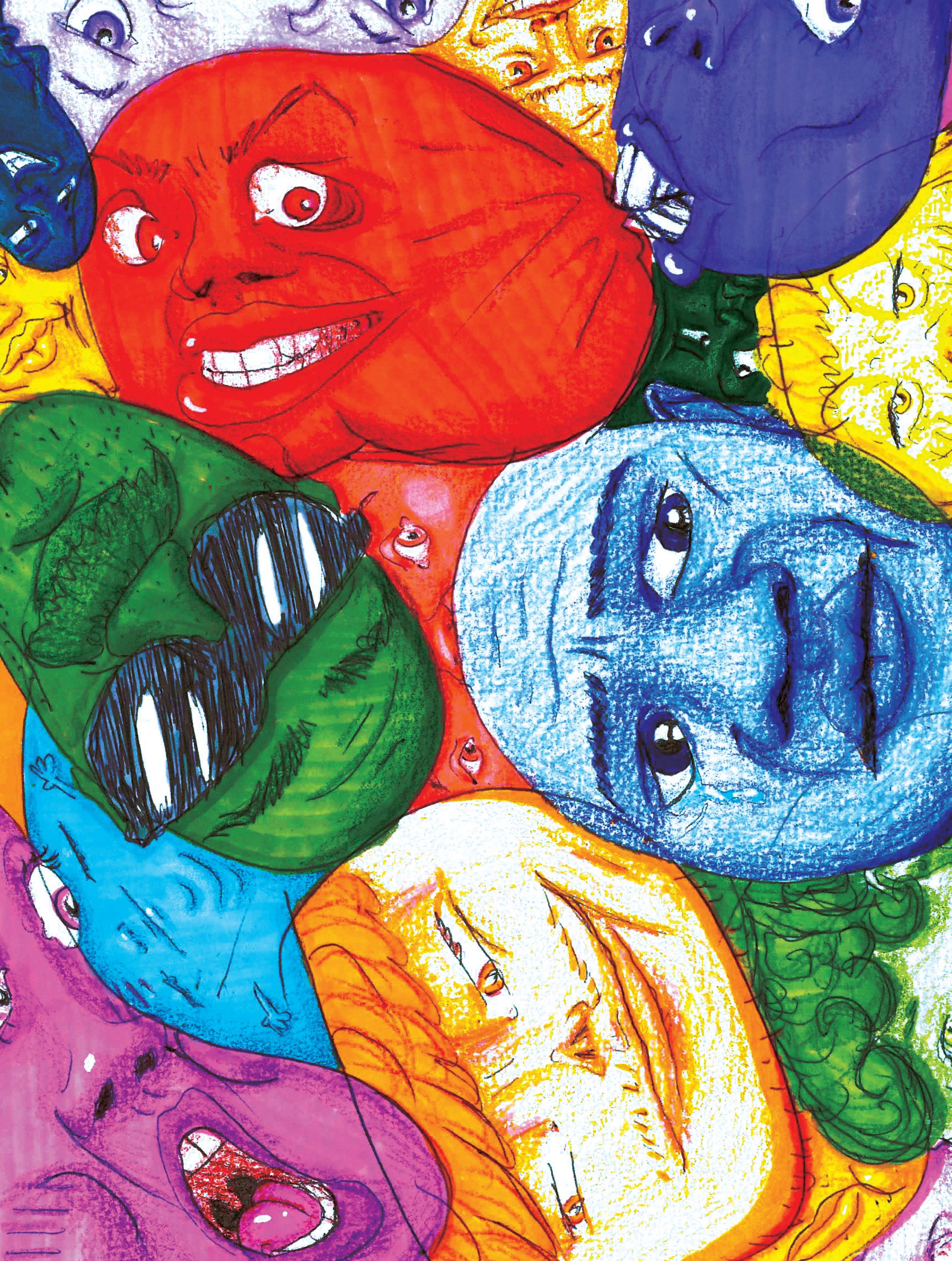
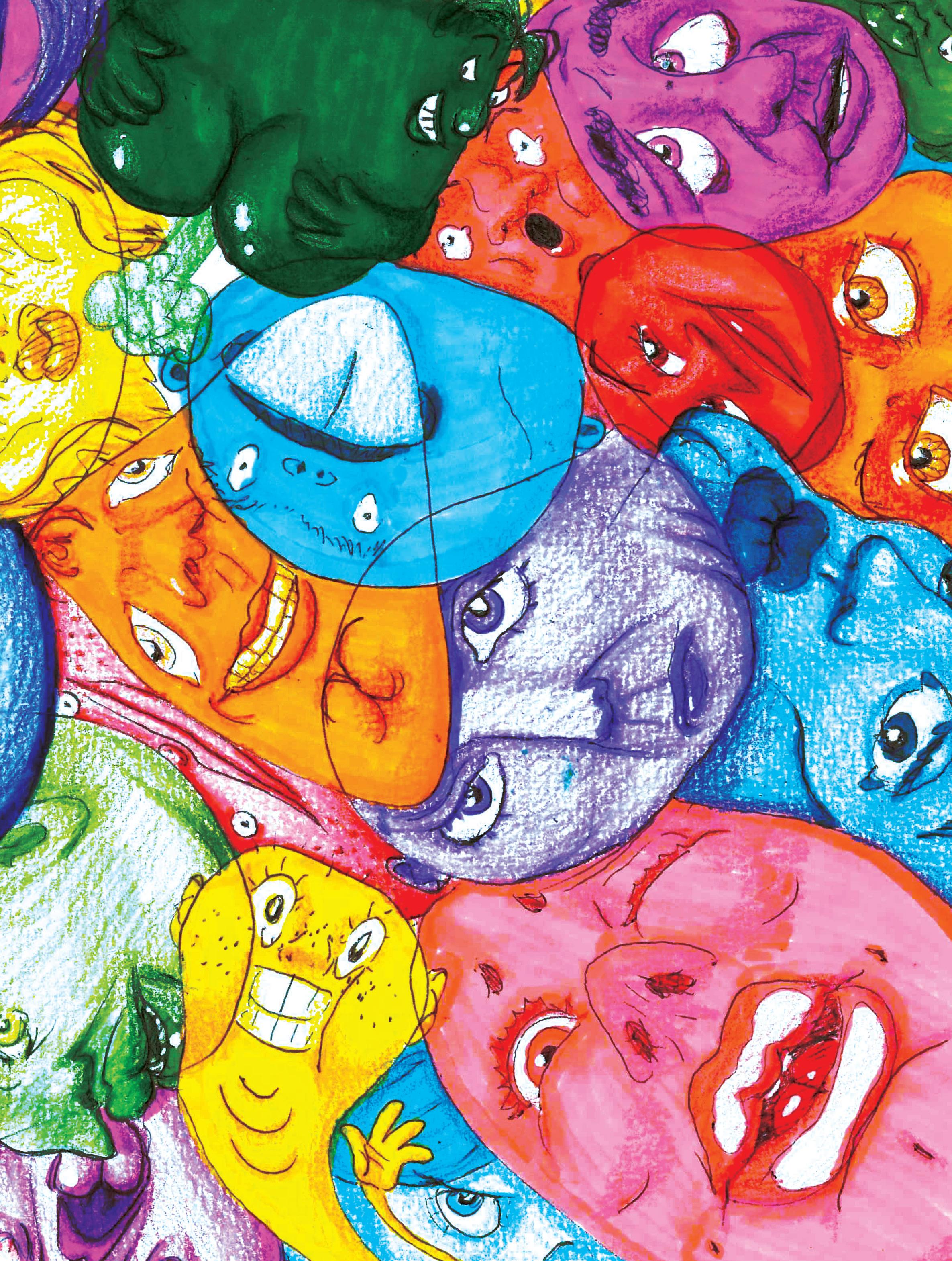
ByZoeEckhoff
IllustratedbyConnorMoffat
aboutThisisanintervention.Foreveryonewhopanics early-onsetdementiaeverytimeyouforget seasonalwhatyouateforbreakfastandespeciallywiththe flipofanexampaperastheclockstarts sleepticking.Arewerememberinglessandless?Isit loss?TikTok?ThoseAIbreathareelswe’d Mayberatherforget?Or“thatdamnphone”altogether? ourlecturerswereright,andpenandpaperisexactlywhereweshouldregressto.

Critic Te Ārohi gathered several partially rehabilitated students into a metaphorical support group for the internet-addicted. These brave students are in varying stages of recovery, some simply endorsing note-taking strategies on refill paper, while others have quit social media altogether. As each person shared, symptoms of withdrawal were clear: twitchy phantom scrolling fingers, intermittent grabs for a phone that wasn’t there, and unfocused eyes that wandered as if looking for a splitscreen. We’ve roped together the most un-creatureous campus cohort who, like a horny one-night stand with zero concern for safe sax, have taken Otago University raw.
And so it begins. The light flickers from a bare bulb hanging in the centre of the totally real and not imagined room where the session ensues. Using UNO rules, it all starts to the left of Critic: Zoe, a loyal staff member to the student magazine, but don’t you dare look at her screen time. Zoe’s subtle tan betrays her return from what she’s begun referring to as a “rehabilitation excursion” in the Indonesian sea. There, she survived without social media for three whole nights, and four whole days. “I felt fucking awesome,” she says, describing reading the backs of hand wash bottles while on the toilet, daydreaming pitches for Critic, and actually reading the book she’d brought on the trip.

But it didn’t last. “I’ve…” she stutters, “I’ve relapsed.” As soon as she was back on dry land, Zoe curated the “perfect” Insta post from her trip. They do say the back and forth is all a part of the process. “Remember how it felt, Zoe?” Critic asks. “No more doom scrolling, Otago Gooning reels, or sem 1 photo dumps.” Her eyes lift and she ponders for a moment. “Better memory, 9pm bedtimes,” Critic continues as Zoe’s lip begins to quiver. “I’m sorry!” she cries. “I’ve been using it every day since my return and I can hardly sleep without seeing the perfect GRWM!” With a metaphorical hand on Zoe’s shoulder, Critic reassures her. “There, there. How about we move on to someone else?”
Ella raises her hand next. Following advice from her 200-level maths paper, she’s taking the leap and going au naturel this semester. When it comes to math, it’s far easier to go all pressedwood and ink when noting down and annotating equations, and she likes the aesthetic of sharpening her pencil for a particularly juicy formula. “I’ve even thought about buying a chalkboard for home study sessions,” she says with a gleam in her eye, perhaps picturing Murphy from Interstellar. “That’s wonderful, Ella,” Critic says. She admits to the group that while she does still find lecture slides easier to annotate on a laptop sometimes, for the most part she likes feeling like she’s no longer “rotting” her brain. When Critic asks whether she’d recommend the change to others, she replies, “De-pens on the paper.”
Eyes shift to her left to the newest member of the group. Sam is a relatively well-known figure on campus through his presence on both Critic and Radio One social media.
Sam is fluent in brain-rot and is the most chronically online person many in his circles know. There isn’t an Insta Reel he hasn’t seen, nor a Facebook Marketplace item he hasn’t considered. Out of concern for Sam, his sister encouraged him to join the support group. Sam has just completed one week without social media – including LinkedIn. “It was actually fine,” he says. “I just found that I’d been using it as a social crutch a lot. I haven’t known where to look this week to avoid eye contact without it.” But besides that – and his friends getting annoyed they can’t track him on Snap Maps – he’s felt surprisingly little change.
Alia and Isabel have come together. The pair are both second-year Med students in a partial technological rehabilitation. The two of them use the sploogy chemicals and cellulose fibres tactic for some of their papers, finding it had a notable impact on their learning capabilities and lasting memory. “I’ve started remembering shit so much better,” says Alia. The tactile lifestyle has been transformative for her. Before making the switch, she’d had trouble with falling asleep in lectures. “If I write my notes it forces me to take in the information and process it,” she explains. A beautiful story of personal growth. Isabel followed her friend’s lead, and shyly adds that she’s reconnected with her childhood love of doodling – or doing “little drawings on the side,” as she put it. Two different personal experiences, but equally inspirational.
Leonard* raises his hand. He recently joined the support group with one condition: total anonymity. Leonard’s been sober roughly three months now. No Instagram. No Snapchat. Not even Facebook. He’s even gone ‘book and quill’ in his lectures. How he survives without a daily squiz through Facebook Marketplace is anyone’s guess, but Leonard does it nonetheless. Since his joining he’s been a real inspiration to the group. “I’m still using my phone only for calls, texts and music… and Youtube sometimes,” he admits.
In times like these, Leonard’s testimony is crucial. “I’ve spent more time with things that matter, and people I care about,” he explains. “I seem to remember things better when I write it down. It forces you to put the information in your own words and gives you practice with actually writing it down too.” You can always trust Leonard to inspire. He’s virtually ascended the ties of technological advancement with a will power stronger than most. Leonard is living his best life. Critic turns to the group. “Perhaps we can all take a leaf out of Leonard's book today.”
*Name changed.

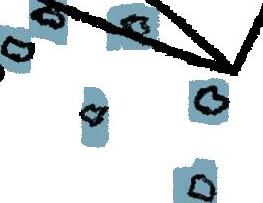

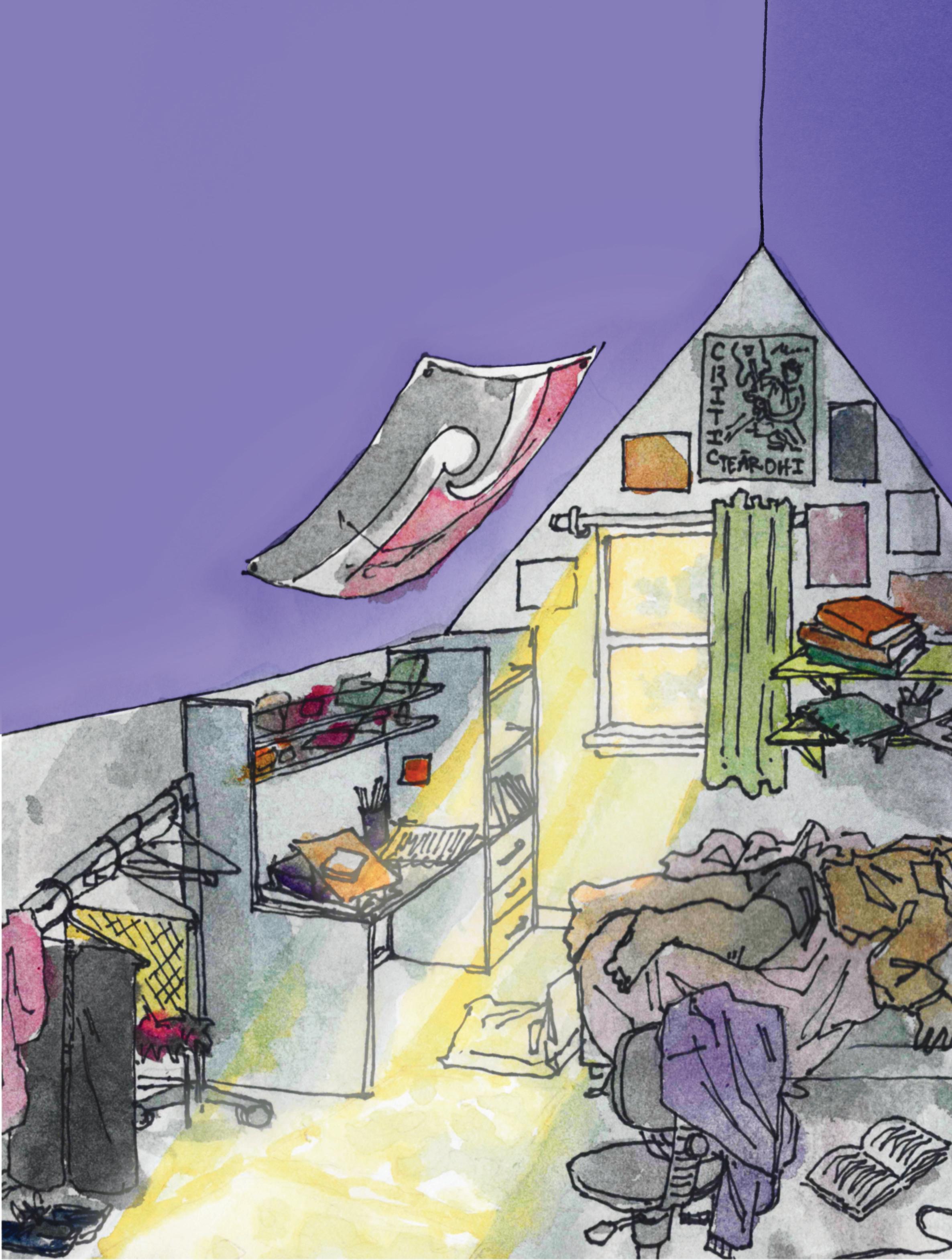
Te Āwhina Pounamu
Waikaramihi – Ngāpuhi, Ngāti Hine, Te Hikutū, Te Whānau a Apanui, Kāi Tahu, Kāti Māmoe
It was the second or third week of uni. I was still riding the high of being the first in my whānau to attend university. With three scholarships under my belt, a double degree ahead of me, and a fresh start away from Whangārei, everyone said I was going to do great things – and honestly, I wore that like a badge of honour. But once the excitement faded, reality settled in.
The scholarships didn’t stretch far. I didn’t have the same wardrobe or confidence that everyone else seemed to arrive with. I became “the one with the scholarship”, which came with its own pressure: always performing, always proving I deserved to be there. I’d traded one label for another, from ‘the smart one’ to ‘the exception’.
Most of us were in competitive first-year programmes, and I was always conveniently nearby when someone felt like venting about Māori entrance schemes – how my theoretical B- would apparently trump their hypothetical A+, just because I was Māori. We weren’t even in the same programme. One person even told me I didn’t need to attend tutorials because “Maaris just get in anyway.”
I was one of only two Māori girls in my hall, and people constantly confused us. It became a joke – the kind that stops being funny real quick. She was everything I wasn’t: tall, gorgeous, accomplished. I’d walk around with my timetable scribbled on a sticky note, in the only shoes I owned – a pair of $6 jandals (the good kind). Out of shame, I started to overcompensate – overworking, overspending, overdoing. After the shock of my first year, I refused to be caught doing “not enough” again. I’d rather be too much than risk being seen as undeserving.
And as anyone would, I crashed and burned. But no one could ever know. I was the trailblazer – for my whānau, my iwi, my people – and they weren’t about to find out otherwise. Honestly, it broke me.
For many Māori students, university is a chance to grow, leave home, and do what no one else in your whānau has done. But alongside the excitement comes an undercurrent: justifying your presence, pushing back against stereotypes, and navigating a system never built with you in mind.
Like most students, we juggle assignments, part-time jobs, and the loneliness of being far from home. But layered over that is a cultural load – often invisible, always heavy. It’s the expectation to show up for kaupapa, to represent in spaces that weren’t made for us, and to quietly educate those around us – the constant mental gymnastics of making others comfortable with your presence.
There’s always the unspoken demand to be the “good kind” of Māori – or face the smug assumptions of being just “another hori”. All of it builds. Quietly. Relentlessly. But burnout doesn’t knock. It creeps in. It’s more than just being tired – it’s a full-body shutdown. Your brain starts buffering, and even brushing your teeth feels monumental. When you’ve been raised to be grateful, to never waste the opportunity, rest starts to feel like failure. And that’s when it breaks you. Not all at once, but slowly, under the surface.
It made me wonder: how many Māori students are burning out quietly, because pulling back feels like letting someone down, or getting left behind? Critic Te Ārohi spoke with Te Āwhina Pounamu Waikaramihi, a wahine of many powerful firsts, about the pressure, expectations, and quiet exhaustion that come with always being the one to represent.
At first glance, Te Āwhina had it all together. The eldest daughter, the first in her whānau to go to university, former Officer on Te Rito (the executive of Te Rōpū Māori) and, in 2022, the first Māori woman to serve as Political Representative on the OUSA Executive. A connector. A leader. The dependable go-to. But behind the smiling face and packed calendar was something less visible: the slow, quiet creep of academic burnout.
Te Āwhina grew up between Kerikeri and Whakatāne as the eldest child of eight in what she calls her “very
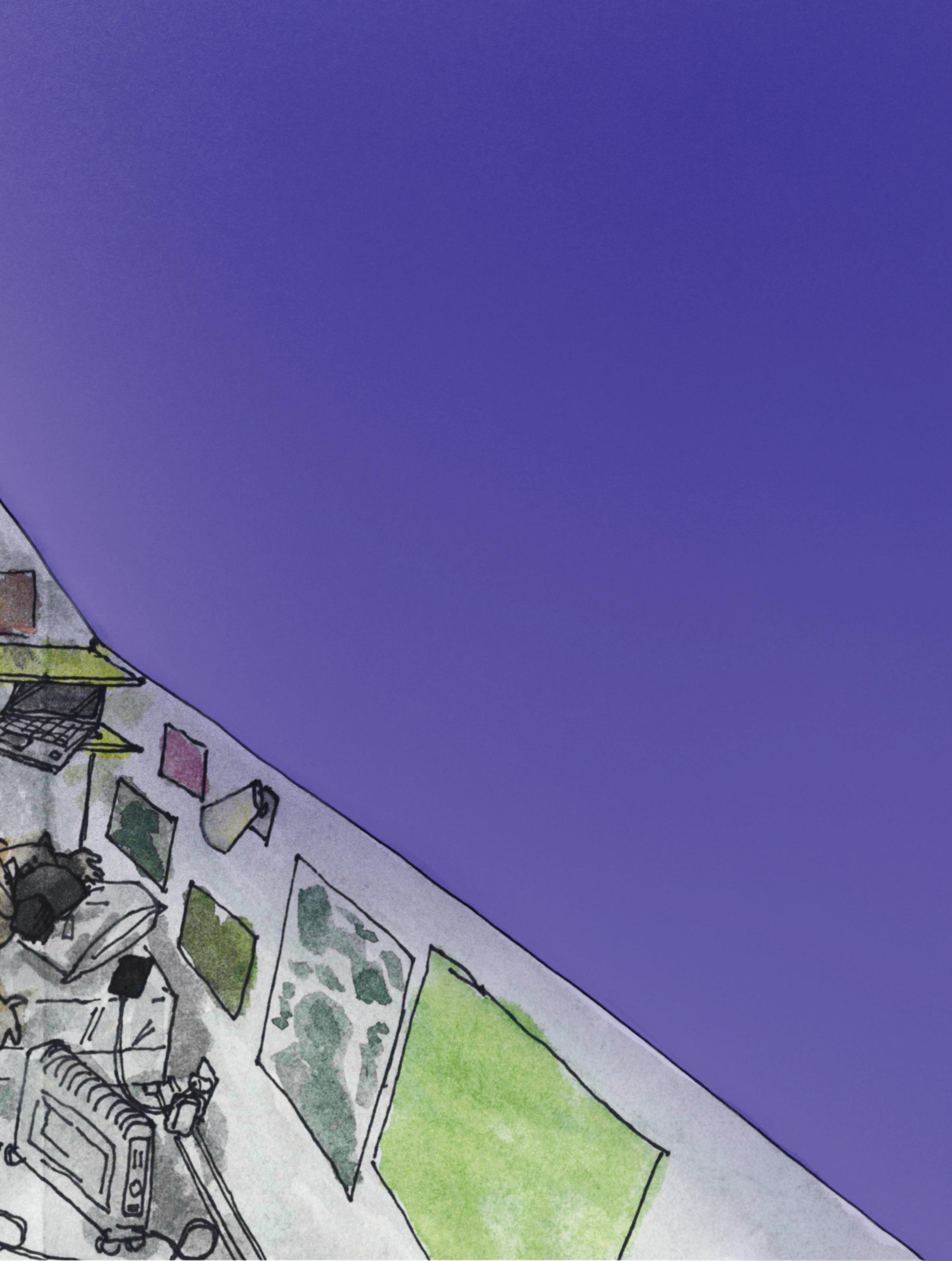
JimmyIllustratedbyTannock
dysfunctional, crazy, big Māori family”, a role that shaped her into a natural caretaker long before she ever set foot on campus. Now a Master’s student and, perhaps ironically, in Peace and Conflict Studies, her journey reflects the quiet pressures that tauira Māori often carry well before their first assignment is even due.
When talking about her upbringing, she recalls the rocky road of growing up in a split family with parents who don’t get along: “It was full of crazy times.” From a young age, she learned to carry others – emotionally, mentally, and sometimes physically. Despite the turbulence, her parents – academics themselves – were among her biggest inspirations. “They’ve always wanted us to go to university and follow in their footsteps,” she says. Her entrepreneurial father, full of big ideas, sparked her interest in commerce. “He doesn’t necessarily have the funding or resources to back his entrepreneurial mind, but he’s the reason I got into business.” And it was her parents’ deep love for history and te ao Māori that inspired her to pursue Pacific Island Studies.
Te Āwhina describes her first few years in Ōtepoti as “fun and transformative”. “[It was] a real time of discovering who I am and finding my identity or how to express myself in different settings,” she reflects. A fresh start. A change of scenery. The kind of escape that draws many incoming tauira, eager to shed the weight of small-town expectations and step into something new.
Even so, the drive to pursue higher education wasn’t just academic – it was also about escape. “I couldn’t wait to leave home and just get out into the world,” she says. “I applied for a scholarship to come here, and I only applied because there was a Māori woman travelling the motu (country) to inspire other Māori students to come to uni.”
Even talking about going to uni seemed to be a big deal, let alone looking into applications and scholarships, and all of the admin that comes with it. In her final year of school, Te Āwhina was awarded a scholarship to attend university, which sealed the decision. Ultimately, she says, it was her whakapapa to Kāi Tahu that brought her down to Ōtepoti. “I’ve always wanted to make that connection,” she says.
But the decision to leave goes beyond chasing opportunity or reconnection – it comes back to carrying expectations, too. “What first comes to mind is breaking cycles in my family,” she says, reflecting on the weight of being the first. “If I don’t make those changes in my family life, or if I don’t succeed academically, who then will do it?” That sense of duty followed her into every lecture, every late night, and every missed family moment.
When things started to unravel partway through her degree, it seemed that there had been no warning sign. “I fell off the wagon halfway through,” she says. “I had to explain to the University why I wasn’t doing so well academically.” Fortunately, she found support in the people who understood her context – kaiāwhina, Māori staff in her department, and the counsellors at Te Huka Mātauraka, the Māori Centre. “I told them straight up: I’m the eldest of my very dysfunctional, crazy, big Māori family, and I carry a lot.” Sometimes, that meant putting whānau ahead of her studies. In one instance, she recalls leaving Dunedin to support her sibling. That decision came at a cost – missed classes, failed papers – but for Te Āwhina, there was no question of doing it differently. By her second and third years, the toll became undeniable. “We’re the ones checking on others, so we don’t have people checking on us,” she says. The stress showed up
physically before it ever showed up on paper. “I lost so much weight because I was so stressed. I wasn’t eating properly.” Few people noticed – or if they did, they didn’t ask. Until one friend did. “He said, ‘Are you okay? You don’t look so well,’ and I just broke down. It was the first time someone actually did something.” Other comments weren’t as kind. “People thought they could comment on my body because I’d lost weight. Someone even said it looked like I was on drugs,” Te Āwhina shares. “Little did they know, I was going through it.”
That year, she failed more papers than she’d care to count. Behind the transcript was something harder to measure: a slow unravelling. And it didn’t happen overnight.
Burnout doesn’t look like laziness. It comes quietly, and all at once. It’s insomnia, headaches, detachment, and emotional numbness. Crucially, it’s also not something you push through by working harder. Te Āwhina describes her own experience clearly: “I not only feel like I'm always on, I feel like I have to be on. Even when I’m off, my mind is still going.” That compulsion to stay switched on is a symptom of deeper systemic and cultural pressures – what some

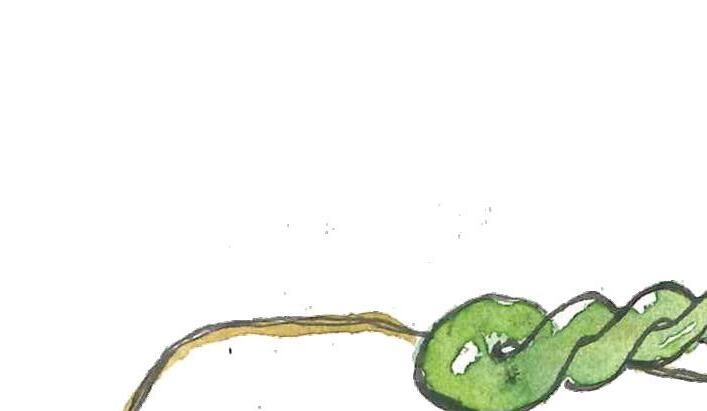
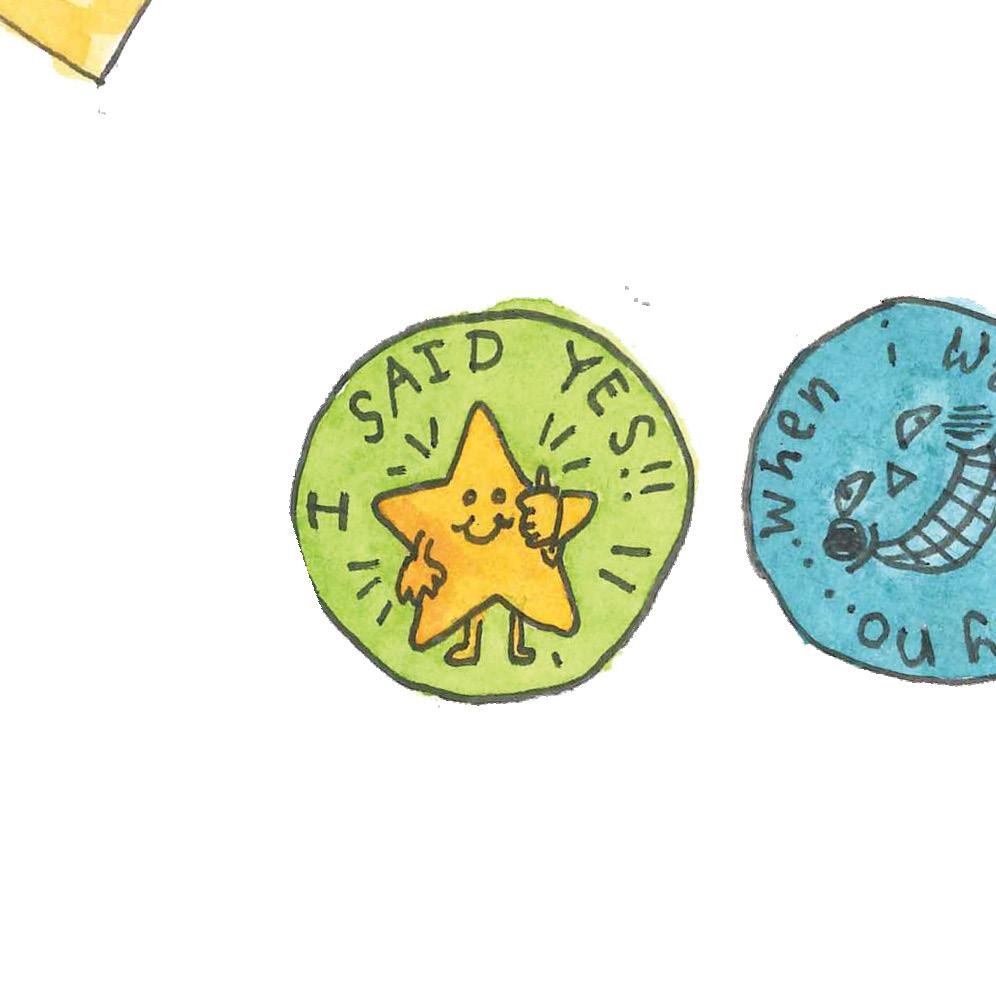
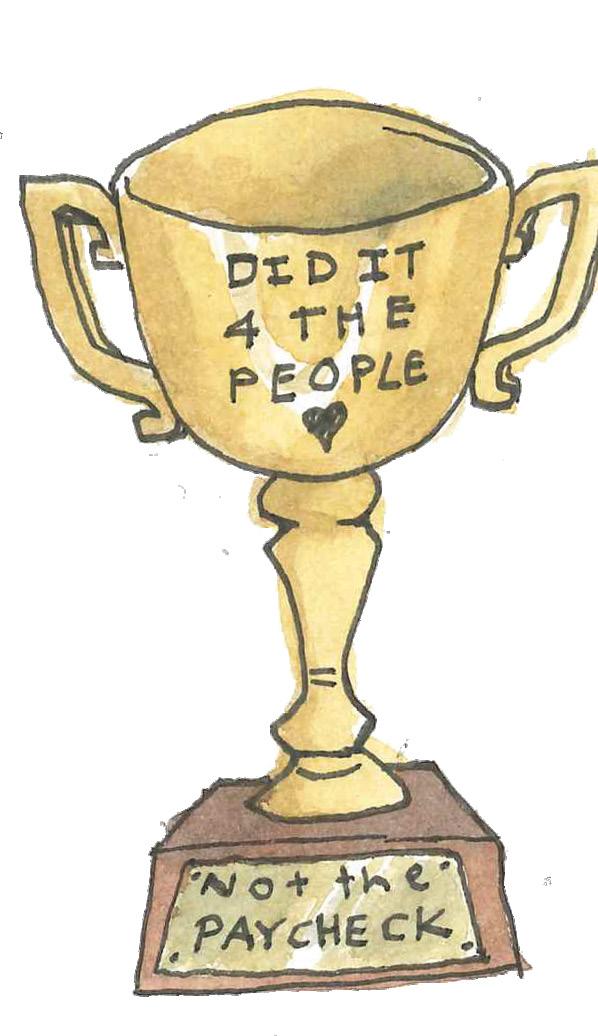
big thinkers are calling “depleted mauri” where chronic stress and overwhelming demands drain your life force.
Te Āwhina only learned the term “burnout” at university, during a faith-and-wellness workshop. “I thought, wow, I can resonate with that,” she remembers. But recognition didn’t stop it. “I push through, and then I really crash.”
The causes are cumulative: academic rigour, kaupapa overload, cultural expectations, whānau commitments, and parenting. “I’ll sign up for things because I believe I can juggle it all […] then I realise I’ve overestimated my capacity.” And when she does pause, even slightly, it’s accompanied by intense guilt: “I feel a lot of mum guilt. Like if I'm not studying, or if I'm not working, I should be giving all my attention to my son.” She reminds herself that self-care isn’t selfish: “I need to remind myself, and I do this often, that pouring into my own cup is pouring into him.”
This isn’t merely anecdotal – it echoes something we have been warned about: chronic kaupapa fatigue, doing the work of many, never being replenished, and ageing before your time. Whether it’s perpetual code-switching, cultural caretaking, or being asked to speak on behalf of Māori every day; there’s no respite. The signs match what Pūkenga Psychology names as depleted-mauri burnout: physical fatigue despite sleep, insomnia, irritability, loss of focus, emotional withdrawal, cynicism, and frequent headaches or illness.
On a national scale, Māori are statistically at greater risk of burnout. Research from AUT revealed that Māori staff face nearly six times the burnout risk compared to others – a consequence of bureaucratic systems, relentless workloads, and the expectation of constant connectivity. If the professional environment poses that level of threat, the compounded pressure faced by Māori students navigating colonial institutions on unequal terms is not hard to imagine. By the time burnout shows up in grades, attendance, or health, the deeper damage – emotional, cultural, and spiritual – is already well underway. Too often, the systems meant to support students are ill-equipped to recognise or respond to that kind of collapse.

When asked if the University understands or supports the realities that tauira Māori face, Te Āwhina was torn. “Yes and no. It just depends,” she says, explaining that there are some systems in place but that they can still retain an institutional feel. “I know a lot of rangatahi who have just started uni this year who aren’t getting involved in TRM, or going to the cultural support opportunities available because of the culture – [there’s an] intimidating cliqueness [to] some of those spaces.” Perhaps it's a combination of culture shock, cliqueness, and overall disconnect that keeps tauira from pursuing these support
One of the more invisible burdens is the expectation to act as a cultural representative wherever you go – in lecture theatres, clubs, and common rooms – often without the protection of genuine, culturally grounded support. As The Education Hub explains, caring for students as Māori means acknowledging Māori identities, knowledge, and experiences as valid, legitimate, and enriching to the entire learning space – not flattening them into stereotypes, or extracting value without reciprocity. Tauira Māori are frequently asked to bring their culture into academic spaces, yet those same spaces rarely meet them with the same depth of care or cultural integrity. Even recently, she reflected on an encounter in a postgraduate class filled with international students. “I made a new friend – she’s German, here on exchange studying Peace and Conflict. At the international welcome, He Waka Kōtuia performed kapa haka, and she said, ‘How genuine is this? Did the University just invite them and actually uphold its promise?’”
That comment stayed with Te Āwhina. “I thought, wow –thank you. Because usually no one says that. [We] don’t get many of the Pākehā staff or students noticing that,” she says. “My classmates were shocked to learn our real history [because] people come here thinking Aotearoa has a great partnership with Māori.” These kinds of reflections now come with clarity and a bit of distance. But there was a time, not so long ago, when the weight of navigating university as a Māori student felt far heavier, and a lot more isolating.
Recovery didn’t come quickly for Te Āwhina, and it didn’t come solely from the university system. “I don’t think when I was in the thick of it [that] I was aware of the support systems available to me,” she says. “But I did find my way.” It was a mix of time, a few good friends, and eventually a quiet walk into the counsellor’s office. There, slowly, she began the process of climbing out. “I was so scared to fully fail,” she adds. “Like, I need to get my shit together before I’m fully kicked out or something at uni.”
Her turning point isn’t defined by drastic change or putting life on hold, but rather “feeling a spark for life again.” She started noticing joy again, possibilities, even leadership. “I remember running for TRM and saying, ‘I’m going to get back on the wagon,’” she explains. “I’m going to try something I know I’m capable of. I’m going to come out of the dark.” That decision wasn’t small. “It was a really brave, scary thing for me to do.”
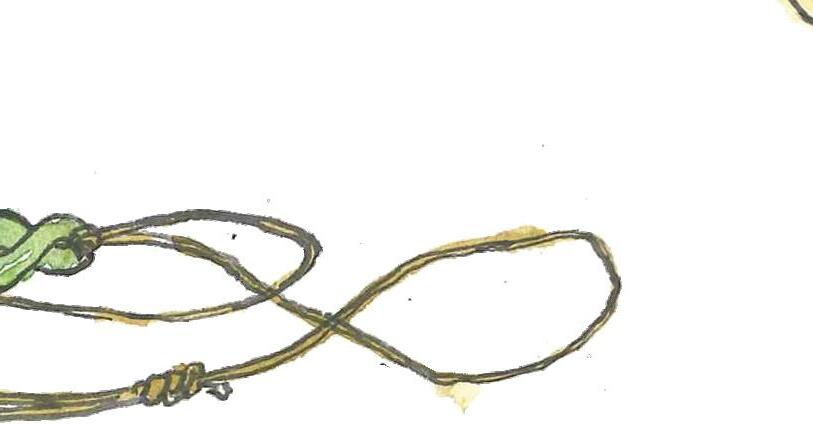
This is what restoration can look like, but it shouldn’t have to come after collapse. The current systems too often reward burnout, platforming unrealistic expectations and leaving Māori students to carry not just the academic load, but cultural and emotional labour too. As Te Āwhina puts it, “When you're going through it, you can't really explain to others what you're going through.” That silence, driven by stigma, shame, or fear of letting people down, often stops tauira Māori from seeking help until it’s too late.
Real solutions lie not just in self-care, but in structural care: peer-support systems, breaks that centre hauora, dedicated Māori student counsellors who understand the cultural context, wānanga with safe people, deactivating social media, and reframing that as manaakitanga to
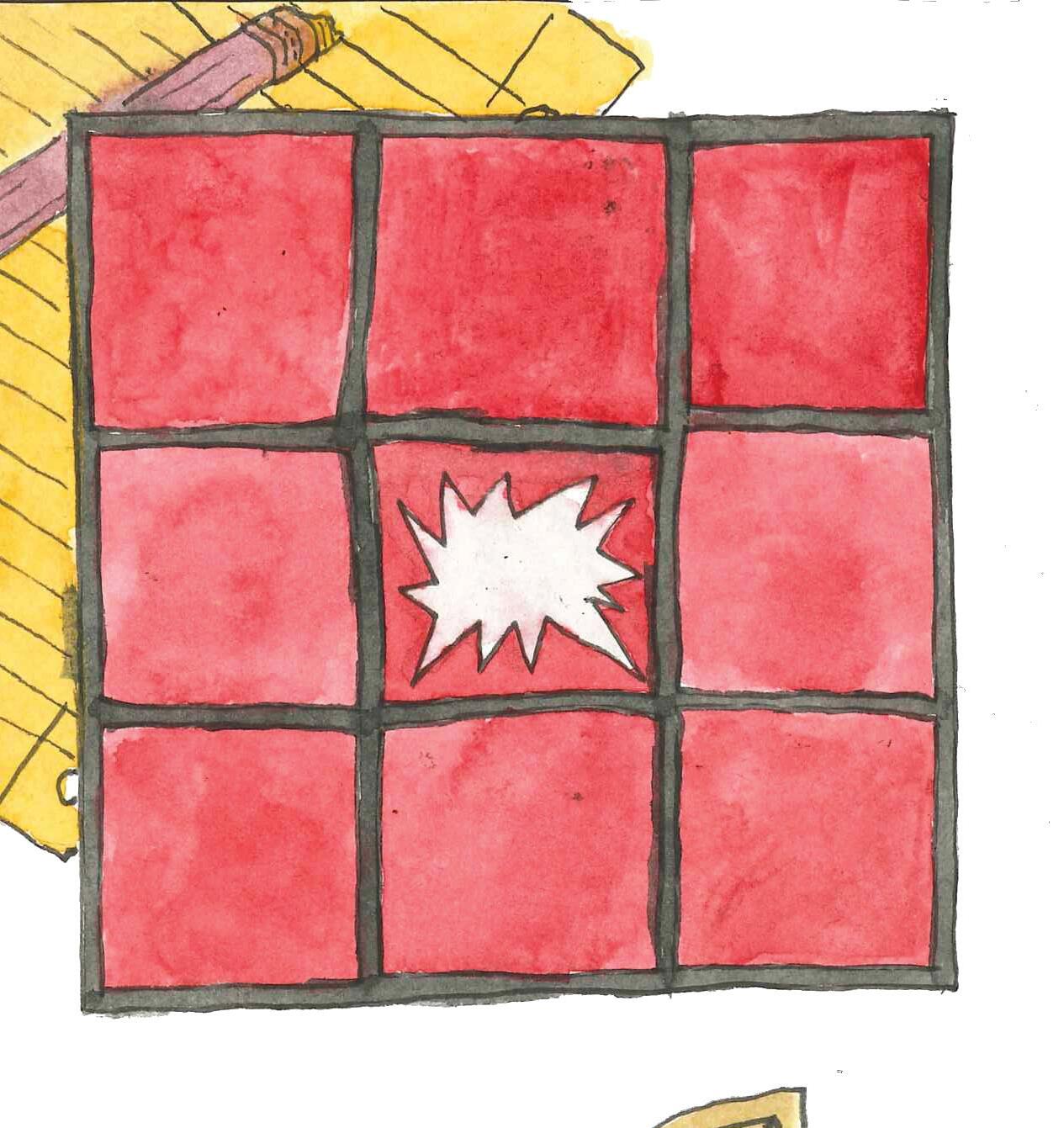
Said outyesof guilt Got called passionate instead of burnt out Whaumau
MaoriOnlyin the room
Did cultural forlabourfree Got kaupapa fatigue Didn’t correct the pronunciation
Name mispronounced
yourself. These aren’t just coping strategies; they’re acts of resistance in a system that wasn’t built with us in mind. “Maybe that kind of rest and isolation was necessary,” Te Āwhina reflects, looking back on the stillness of lockdown. Maybe, in a world that never stops asking, the real revolution is learning to stop – and to protect your mauri before it’s gone. “Maturing over the years – I'm 25 now –I’ve learned that not only is it helpful, but it is necessary to set boundaries where needed.”
With that regrounding came a new drive – the kind that carries you into rooms you once thought were out of reach.
The journey didn’t necessarily begin with a plan to run for the OUSA Executive. “Being on Te Rito was a nice stepping stone,” she says, “but I didn’t know that I was going to [be part of] an overall student body thing.” It was a friend, a former Political Rep and strong Treaty partner, who first encouraged her to run for the role, noticing the potential in her kind of leadership. Te Āwhina shared that she doubted her abilities, that “I couldn’t possibly do that,” but when she learned that Melissa Lama – then President of the University of Otago Pacific Islands Students Association – was running for OUSA President, she felt inspired. “[I thought] wow, this Tongan woman is going to run for OUSA President, for the whole uni? How inspiring.”
Te Āwhina entered the race – and when her competitors dropped out, she was stunned. What should have felt like a victory brought a strange mix of emotions. She recalls thinking, “I'm not going to deserve it. I just get handed it.” Even in that moment of success, self-doubt crept in. But
it didn’t last long. “Someone said to me that they were intimidated by me,” she says. “[I thought], I need to start recognising my own abilities more.”
As the first Māori student to hold the OUSA Political Representative role, she saw the position as more than a job – it was the start of something new. “I was the first Māori Political Rep, [and] there weren’t many before me.” The mahi was demanding, but thrilling: from oral submissions to Members of Parliament about Māori students in education, to delivering local election kaupapa on campus, to coordinating with national politicians like Chlöe Swarbrick. But one challenge that seemed imminent was “trying to get more engagement with the Māori and Pacific students with politics and local politics.” It was also draining. “I definitely got burnt out throughout that year, too, which I don’t think a lot of people knew was going on.”
And through all of it – from juggling kaupapa and elected roles to surviving burnout – Te Āwhina became a māmā. Her son Noa was born the year after her OUSA term and, in many ways, his arrival sharpened everything. Now, as Noa turns two, Te Āwhina is in the early days of her Master’s journey – and just weeks away from crossing the stage to graduate in August with a Bachelor of Arts and Commerce. It’s a massive feat for her whānau. The milestones feel layered: personal, political, and full of purpose. Still, her focus on uplifting Māori hasn’t wavered. In her Master’s thesis, she hopes to centre indigenous-led solutions. “I’m a big believer in indigenous people finding the answers to indigenous issues,” she says.
Looking ahead, her focus is expansive: climate justice, diplomacy, and uplifting communities across Te Moananui-a-Kiwa. “I hope to travel and connect a lot with like-minded people, I want to go into diplomacy, [and] I care about many social justice issues.” But alongside the global, there is the deeply personal: “Motherhood is one of the big dreams of my life. I also want to continue to follow my other dream path and find that balance.” She reflects openly on the tension that many wāhine feel –torn between ambition and caregiving, between the wider world and the one at home.
Being built different isn’t just about carrying more or how well you carry it all. It’s about knowing when to lay things down – the break you don’t take will break you.
Te Āwhina’s journey through student leadership, striving for academic excellence, periods of burnout, and now juggling her Master’s with motherhood, speaks to a wider story of what it takes to navigate institutions that weren’t designed with you in mind. It’s not just about surviving the system; it’s about refusing to shrink within it. From the frontlines of political advocacy to the quiet work of healing, her experience reflects the complexity many wāhine Māori carry: leading change, holding whakapapa, and carving out a space where there wasn’t any.
As she continues forward – not in spite of it all, but because of it – her story is a reminder: being built different doesn’t mean bending to fit the mould. It means shaping something new entirely.



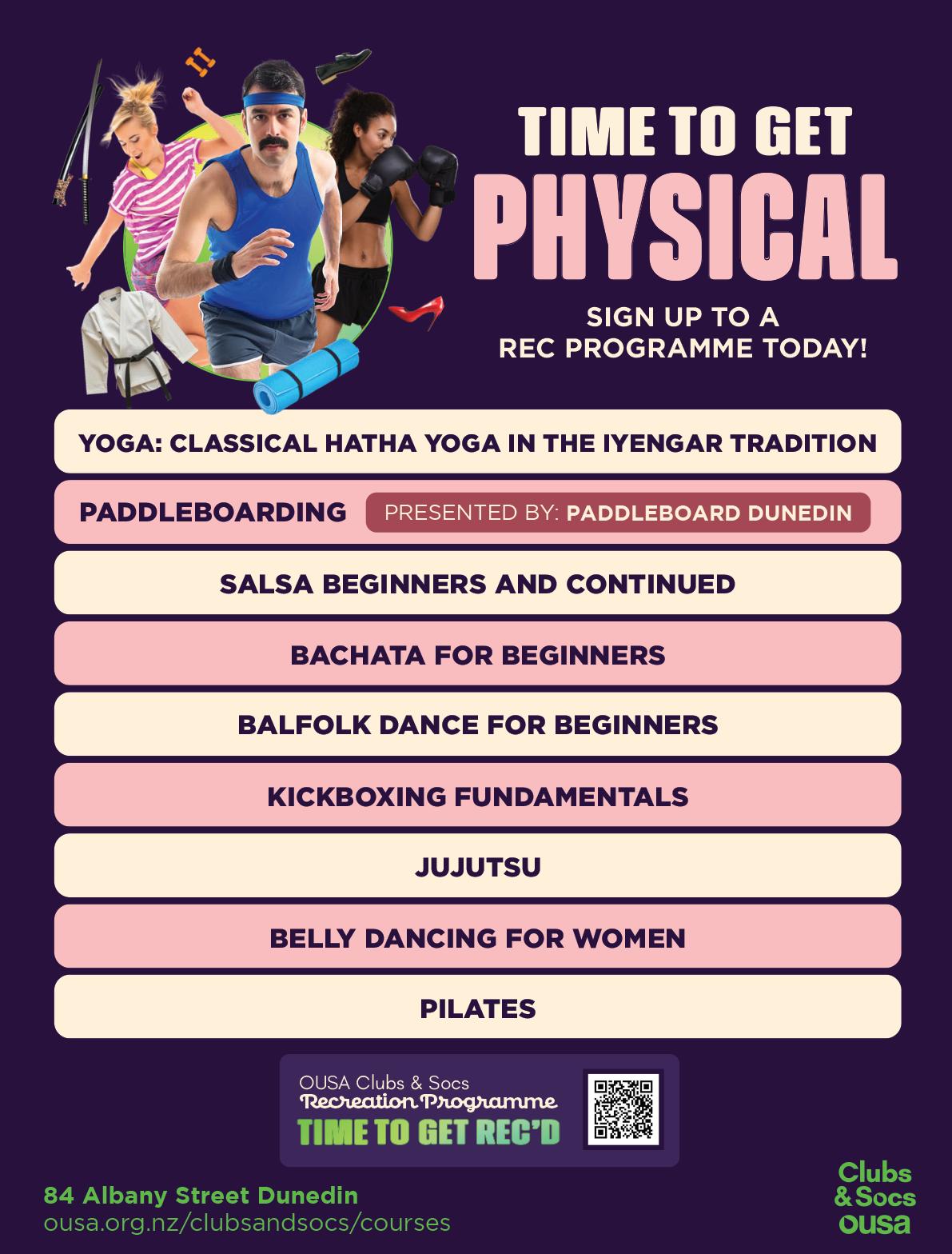
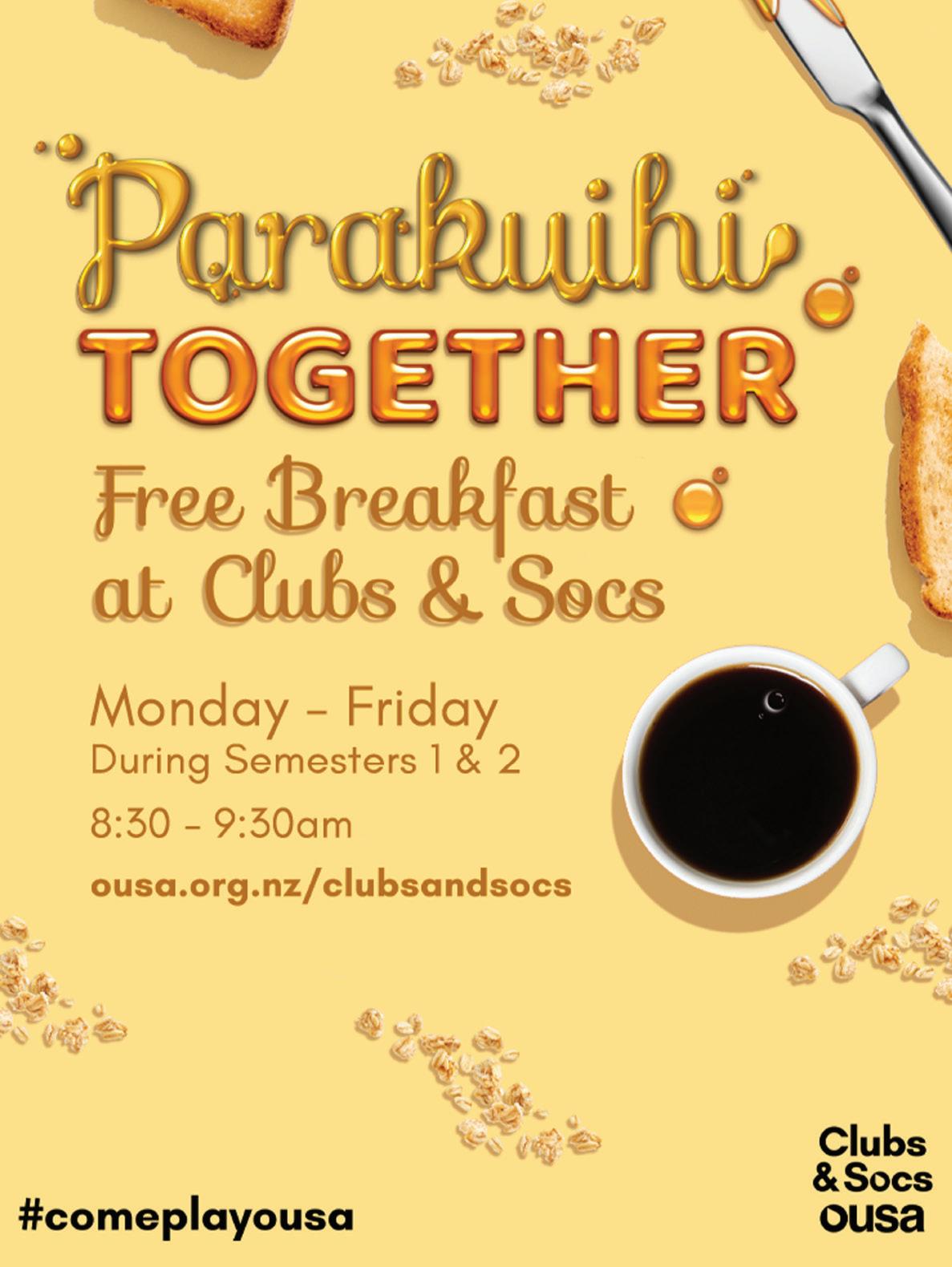
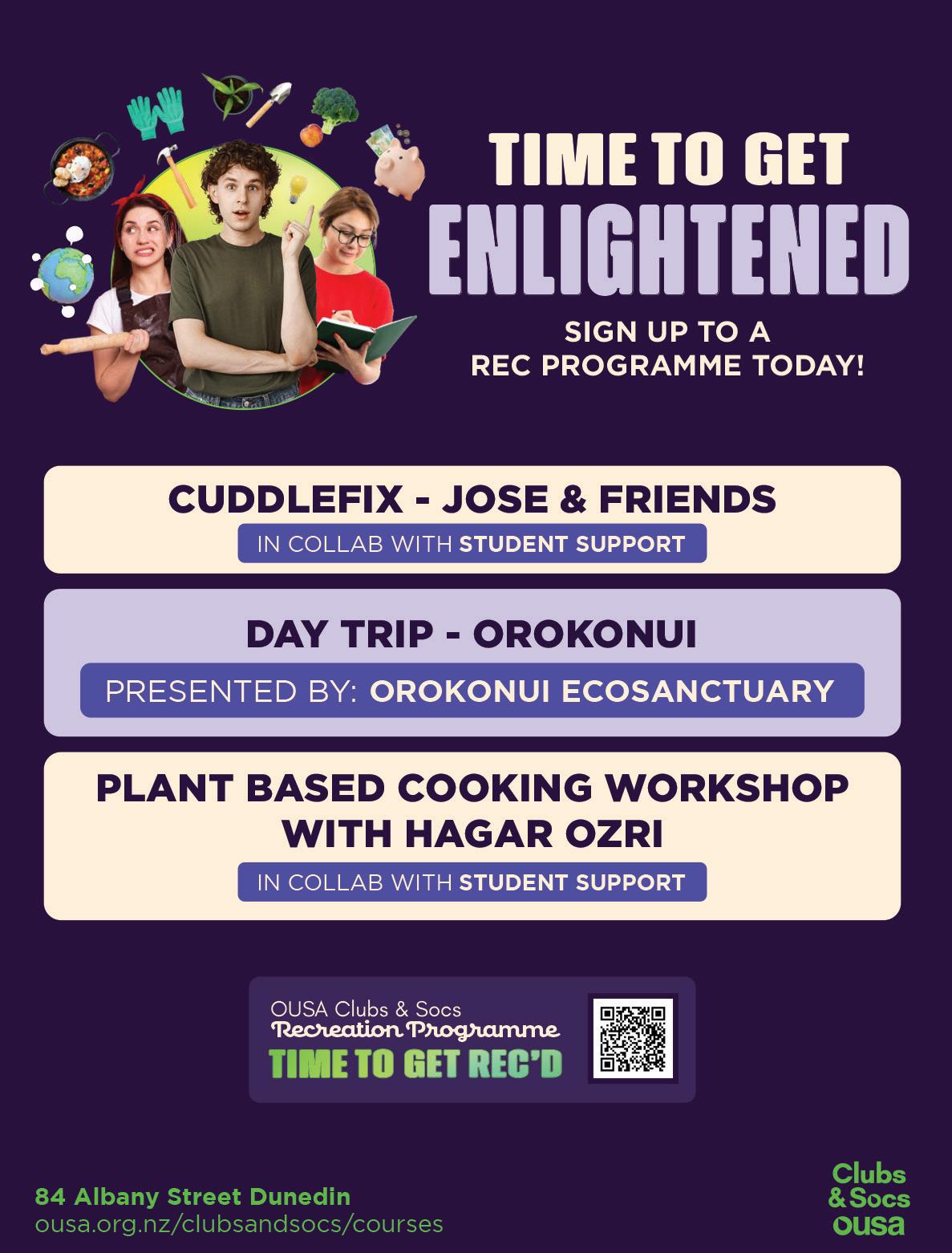

ByJonathanMcCabe
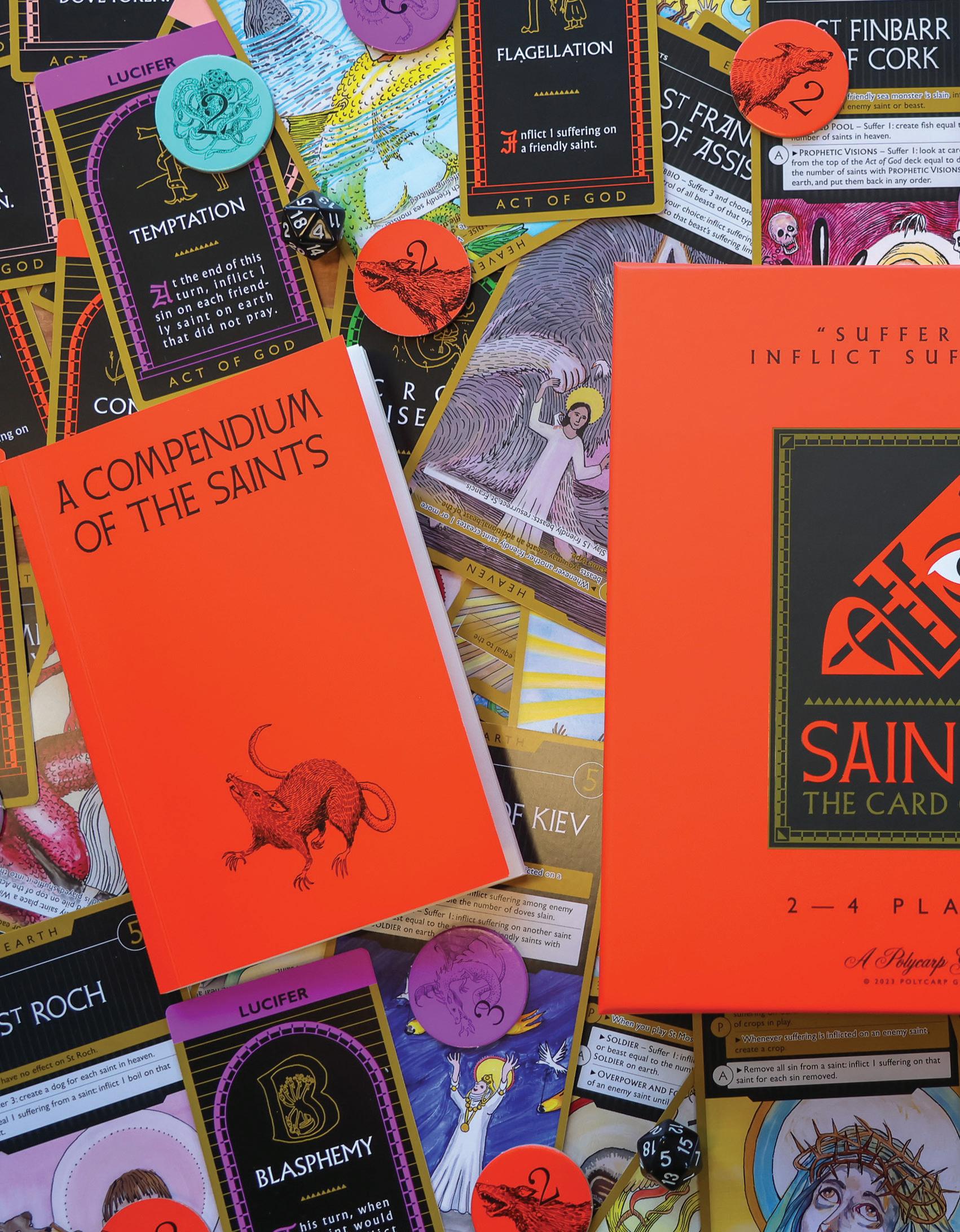
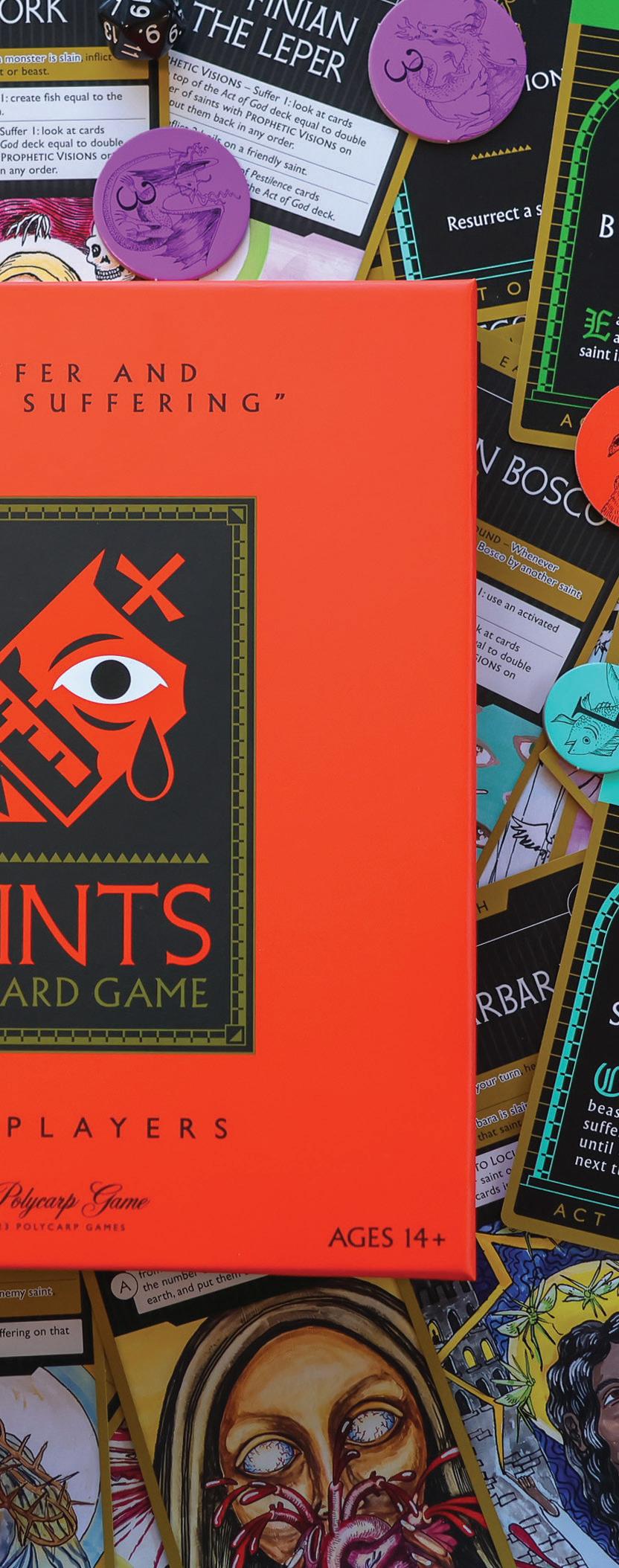
Following his tenure at Critic Te Ārohi as 2019 Editor, one marked by “that” Knox College investigation and a war on shady landlords, Charlie O’Mannin has managed to keep himself busy.
The Dunedin local turned indie board game creator hopes that his most recent venture helps educate players about the weird and wonderful world of 12th century medieval saints.
Charlie started working on the game during Covid-19 lockdowns, thinking it would be a good way to pass the time. The side project soon became a full-time commitment, ending up as a three year long odyssey.
We won't bother trying to describe exactly how this game works. Just like snorting Raro, you won't understand until you've tried it. The basics are that everyone gets dealt a series of large cards depicting saints. Each saint has their own historically accurate holy powers, which you can use to inflict suffering onto other saints.
Charlie worked painstakingly hard scouring the web to find medieval sources telling the stories of these holy revenants. The hope is that certain saints will interest the player enough to open the compendium provided, a book which tells the stories of each of these obscure saints. While there are over 10,000 saints to have chosen from, Charlie narrowed it down to the lesser known 12th century medieval Catholic ones, some of which the modern day church are apparently embarrassed about. They just ain’t vibin’.
For example, you can play as St Francis Xavier, a missionary who famously lost his crucifix while at sea. The compendium will tell you that when he got to shore he encountered “a monstrous crab holding his crucifix aloft in a dripping claw.” This is historically accurate – there’s a school named after this bloke in Mornington.
Charlie built the indie card game with his talented friends Dan, Saskia, Miro, Lucy, and Natasha.
Many are also retired Critic Te Ārohi staff, including Saskia Rushton-Green, the illustrator of the controversial 2018 menstruation issue cover. These talents came in clutch when designing the larger playing cards, capturing the vivid medieval Latin aesthetics.
These six creators each own shares in the company Polycarp Inc, which produced the game. The title comes from the Turkish church named after Saint Polikarp. Its motto is "God is a clown". Charlie visited the church while creating the game, noting that, "We could almost have taken that motto for the game."
It took his team three months of intensive playtesting to weed out any inconsistencies and imbalances of power. Charlie set up six hour playtests each day, dragging in "every single person I knew, everyone they knew, and everyone those people knew.” It reached the point where he was able to host a tournament at Yours cafe using laminated playing cards. Though the game was still a work in progress at this point, Charlie reflects that it “was great to see people had played it so often, they were quite competitive.”
While the game is filled with religious imagery and themes, Charlie is not religious himself. Instead, he is drawn to the aesthetics and the history of medieval Catholicism. "It's not weird to be into Norse or Greek mythology," he said, so it shouldn't be weird to be into monstrous crab adjacent saints. Maybe the Percy Jackson cult should ditch the demigods and start fangirling over some medieval saints instead.
A year and a half since the game’s release, the team has sold around 400 copies. It is stocked in both Dunedin Models and Games Store and Card Merchant. You can buy the box set of Saints: The Card Game on their company’s website http:// polycarp.co.nz

Eating seasonal produce is good for the planet, your health, and your budget. At this time of year pumpkin is one of the most affordable things we can find that fits the bill. This recipe is pretty low effort, just taking a bit of time to roast the pumpkin, but you can do this in advance to save on time. Depending on the size of your pumpkin, this recipe makes a heap of soup so can feed a flat full of hungry people, plus have some leftovers for lunch :))
Dropping sometime around the end of last year, newcomer Orchard Storm Crush’d Ciders are another solid bev proving my theory that they’re making alcohol taste even better to keep everyone drunk and stop societal progress, à la the Kraggle from The Lego Movie or like half the antagonists in The Twilight Zone
There are three flavours of this stuff, but as of writing I have only had the pleasure – and boy is it one – of sampling two: Apple, and Mango, Guava and Passionfruit. You may be thinking, “Fuck, old mate’s plastered, that’s four!” And to that I would say, “Shut up shitstick, the last three are one flavour.” The other flavour is Peach, and I imagine the reason it is as of yet unlocatable is because it is somehow better than the other two.
In my heart of hearts I believe that I would be able to demolish a keg of this stuff on a night out, but it's also 8.3% so it’d probably fold my clothes whilst I’m wearing them and I’d wake up sucking on my shoelaces in whatever the 2025 version of the Death Star mud pit is. And I would not mind one bit.
The pricepoint on this stuff is also batshit insane, clocking in at 13 doubloons when not on sale, and 11 on sale (as was my luck when scouting PAK’nSAVE). At 8.2 standards to a 1.25L “multipack”, Orchard Storms are the latest iteration of the perfectly-sized vessel for Scrumpy- or Nitro-hands. And trust me, you are gonna be able to use your hands quite quickly as there seems to be little in the way of aftertaste, making it quite a pleasant drinking (and often too short) experience.
Taste: 9/10 for MG&P. Solid 7 for Apple. Peach, Apricot and Nectarine remain unseen.
Hangover level: Lowkey a billion/10
Pairs well with: Cutting the roof off a $400 Facebook Marketplace automobile and doing laps of Castle doing impressions of Statler and Waldorf from The Muppets, but there's like nine of you.
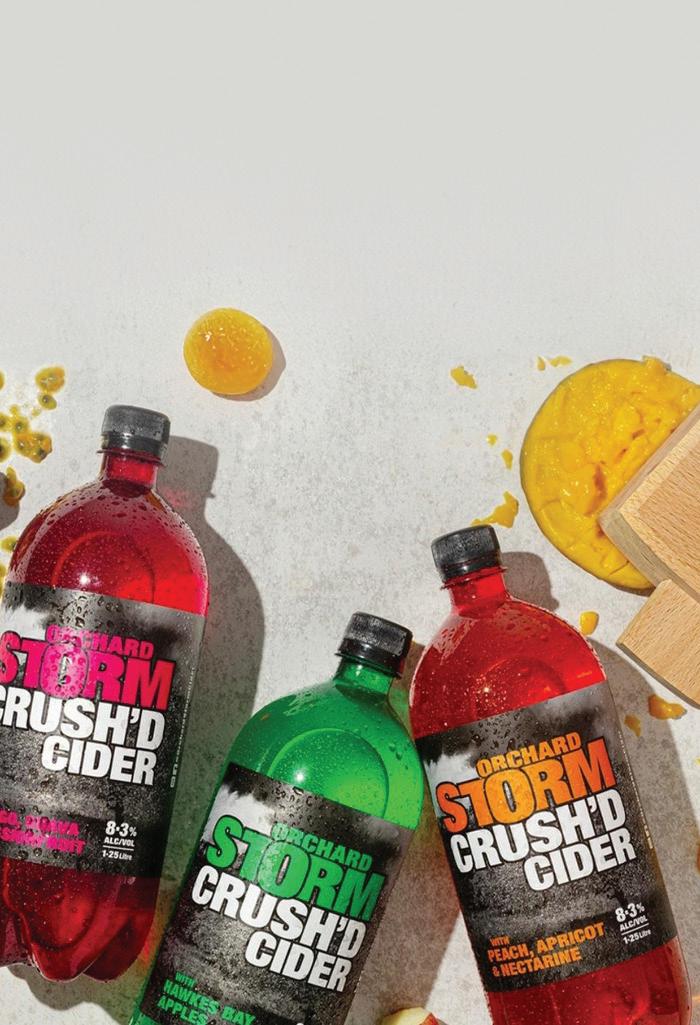
Step 1. Begin by roasting your pumpkin. Heat an oven to 180°C and line a couple of baking trays with some baking paper. Toss the chopped pumpkin in a small amount of oil and some salt and pepper, then place on the tray, and into the oven for approx. 35 mins or until soft and starting to get the occasional browned edge. Once cooked, remove from the oven and place aside. Repeat until all the pumpkin is roasted. This may take two batches. NOTE: You can do this earlier in the day or a day before, just store the pumpkin in the fridge until you’re ready to cook the soup.
Step 2. From here place a large soup pot on a medium heat element and add a small amount of oil to the
1. once blended the soup will thicken slightly so I err on the side of a tiny bit watery
By Ruby Hudson
bottom. Add the chopped onion, leek and a small pinch of salt. Cook for 10 mins until softened.
Step 3. Stir in the garlic and ginger, cooking for 3 mins until fragrant.
Step 4. From here add in the ground cumin, coriander and curry powder, plus a little more oil if needed, and cook for another 3 mins to toast the spices.
Step 5. Add in the roasted pumpkin, stirring until combined with the onion and spices. You will have kind of a pumpkiny mush at this stage. Cook for a couple of mins over low heat.
Step 6. Pour in your vegetable stock, and any extra water to achieve your desired soup consistency. You may need 1 less or 1 more cup of stock/ water depending on the size of your pumpkin and how thick you like your soup. I usually go for an approx. two fingers width more water than pumpkin. Stir until combined.
Step 7. Place a lid on your pot and bring the soup to a gentle simmer over medium heat. Stirring occasionally, cook for 20 mins until the soup is tasty and bubbling.
Step 8. Remove from heat

By Adam Stitely & Gryffin
So, you’re racing like a pisshorse. Is it a) because you drank five 330ml cans (1.65L) in thirty minutes, or b) because you took a piss after drinking five 330ml cans in thirty minutes.
Ones who answered A would argue that getting on the piss has a science behind it. It’s simply Newton's third law of motion: every reaction has an equal and opposite reaction, like the more fun your night the worse the hangover – and 1.65 litres coming in, means 1.65 litres coming out (probably more because alcohol’s a diuretic but no one knows what that means anyway).
Ones who answered B would also argue that getting on the piss has a science behind it. Their science is wrong. Option B’s science, much like closing your eyes and pretending nothing is there, operates on the notion of ignorance is bliss. But you see, the only thing that happens when you hold the seal, is the slapping of some Flex Tape onto a cracked dam. Where unlike the shitty meme freshers probably won’t remember, the contents of your bladder will eventually be released in an action not too dissimilar to funnelling out the full-strength of Niagara falls through a straw. And not just any straw – a shitty paper straw that’s only there to make you feel less guilty about the unsustainable consumerism our society is based upon. That’s right, your science is wrong and you're a bad person.
However, and this may be a question for another time, is it better to wait for one mega-piss or take multiple
smaller, and less uncomfortable, ones? Who knows. But breaking the seal isn’t real and option B takers are probably still busy rearranging the chairs on the Titanic.
Let’s be real: if breaking the seal wasn’t real, then why are toilets the most sought after place on a night out? Dunedin students know well that as soon as you take that first leak, all you face are a waterfall of consequences later down the track.
Sure, it may be psychological, but we can’t help but feel what our brains tell us to. Plus, there is science behind it. Alcohol is a diuretic; this means it prevents your body from releasing the hormones that tell your brain to retain water. Without that signal, the liquid goes straight out of ya.
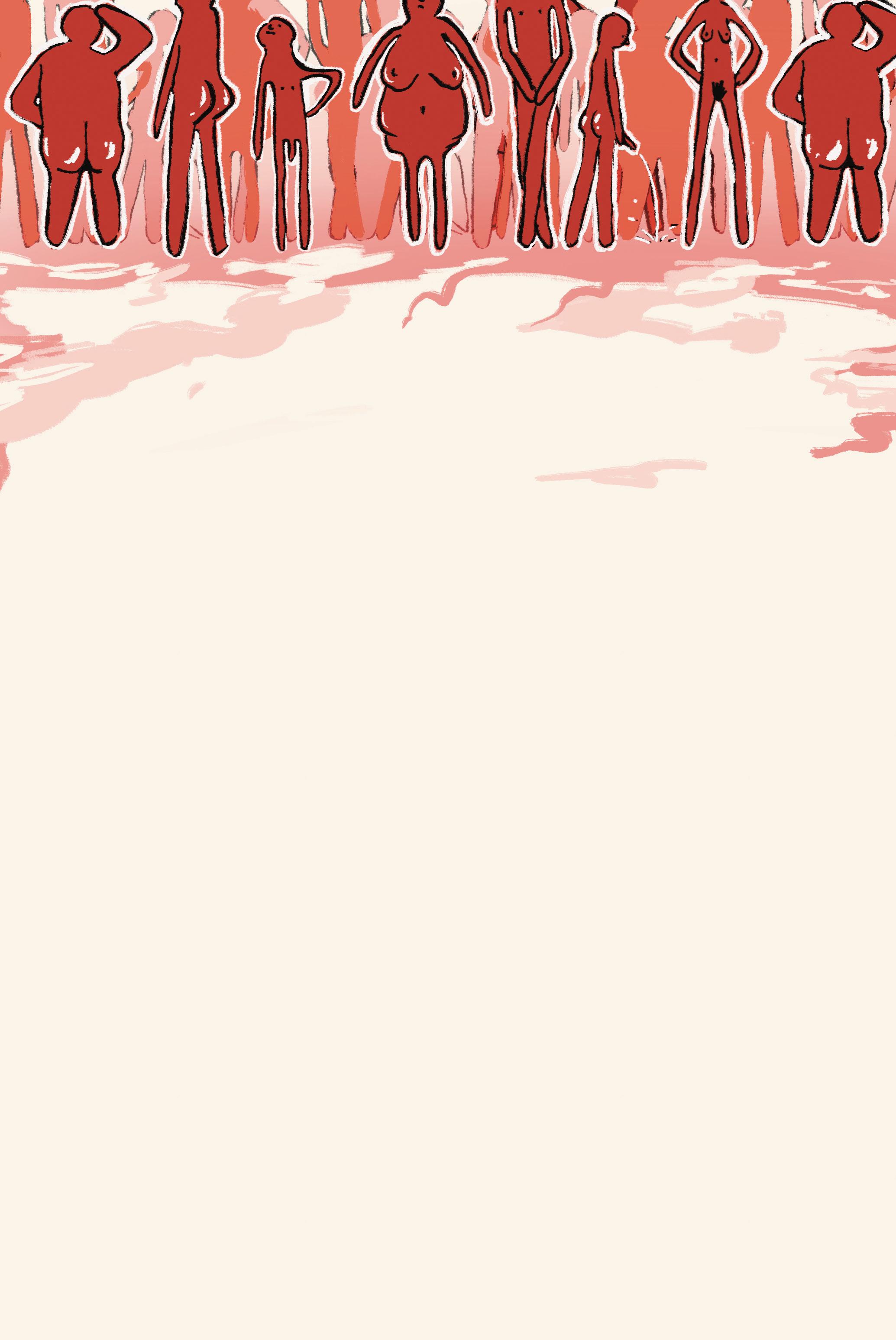
Two weeks ago, I met the hottest guy I’ve ever seen. Our chance encounter outside the Clubs & Societies building led to two weeks of flirting more skillful than I’d ever thought I was capable of. Is he a prolific campus drug dealer? Yes, but we all like a bad boy – especially when he’s built like a tank. Now he’s in my bed, and he’s about to say the sexiest four words a man with calf muscles thicker than my thighs could ever mutter.
—Can I kiss you?
—Uh… yeah.
I’m playing it cool, but I’m sure he can see through that – weeks of anticipation are hard to hide. We start making out, and before long I’m straddled over him while he pulls off his shirt to reveal glorious, hairy muscles. He looks up at me with boyish hunger, and I’m ready to go the rest of the way. There’s just one small problem: I didn’t pay enough attention in school.
Seven years ago, I was the only out-and-proud gay boy in my Year 9 class. I watched our teacher explain the anatomy of the vulva with a thirteen year-old’s cool indifference. I don’t need to know this, I thought. In true high school homsexual fashion, my mind was probably on some straight crush. But of course, it was the 2017 sex-ed curriculum, and Ms. Frost wasn’t going to mention trans people in any real way. The class had prepared me to drunkenly put a condom in the dark, but it never prepared me for this. One day, I was going to be hooking up with the man of my (wet) dreams at four in the morning, and I’d need to find the clitoris.
I’m ready to play it cool again, to just pretend I know what I’m doing, but I think I’ll save myself the embarrassment. I kiss him on the neck before awkwardly whispering in his ear.
—So… I actually haven’t done this before.
—What do you mean?
—Like vaginas and stuff.

Coupled with the first time you pee while drinking, your body is suddenly aware that there’s no holding back from the floodgates opening. You’re no longer distracted by DMCs or the good tunes at pres; all your body can think about is getting rid of alllllll those cans you’ve downed that night. Also, once you empty your bladder, you’ve just created more empty space for it to fill up again. There’s very few people who are gonna stop drinking after they piss, creating a cycle of bladder filling-and-emptying. Better hope your host has more than one toilet, and nobody is having a cheeky tacky. So yes, it may be psychological to some extent, but science supports your small bladder on your nights out. Don’t feel like you have to keep that piss in, it’s not good for you. Liver health may be an afterthought when you’re a student, but your bladder doesn’t deserve that kind of treatment.
—Oh, that’s okay. I prefer masculine terms by the way.
Feeling like the world’s most sexually experienced virgin, I watch as he takes my hand. He runs it down his fuzzy abs, into his boxers, and places it where I can feel his cock. It’s a different size and shape, but it has the same effect on me as any other, its warmth and firmness betraying his horniness. I kiss his neck again, then his chest, then his stomach. I move in for a taste. School can prepare you for anything in theory, but the real world is always more complicated. But there’s only one way to learn.


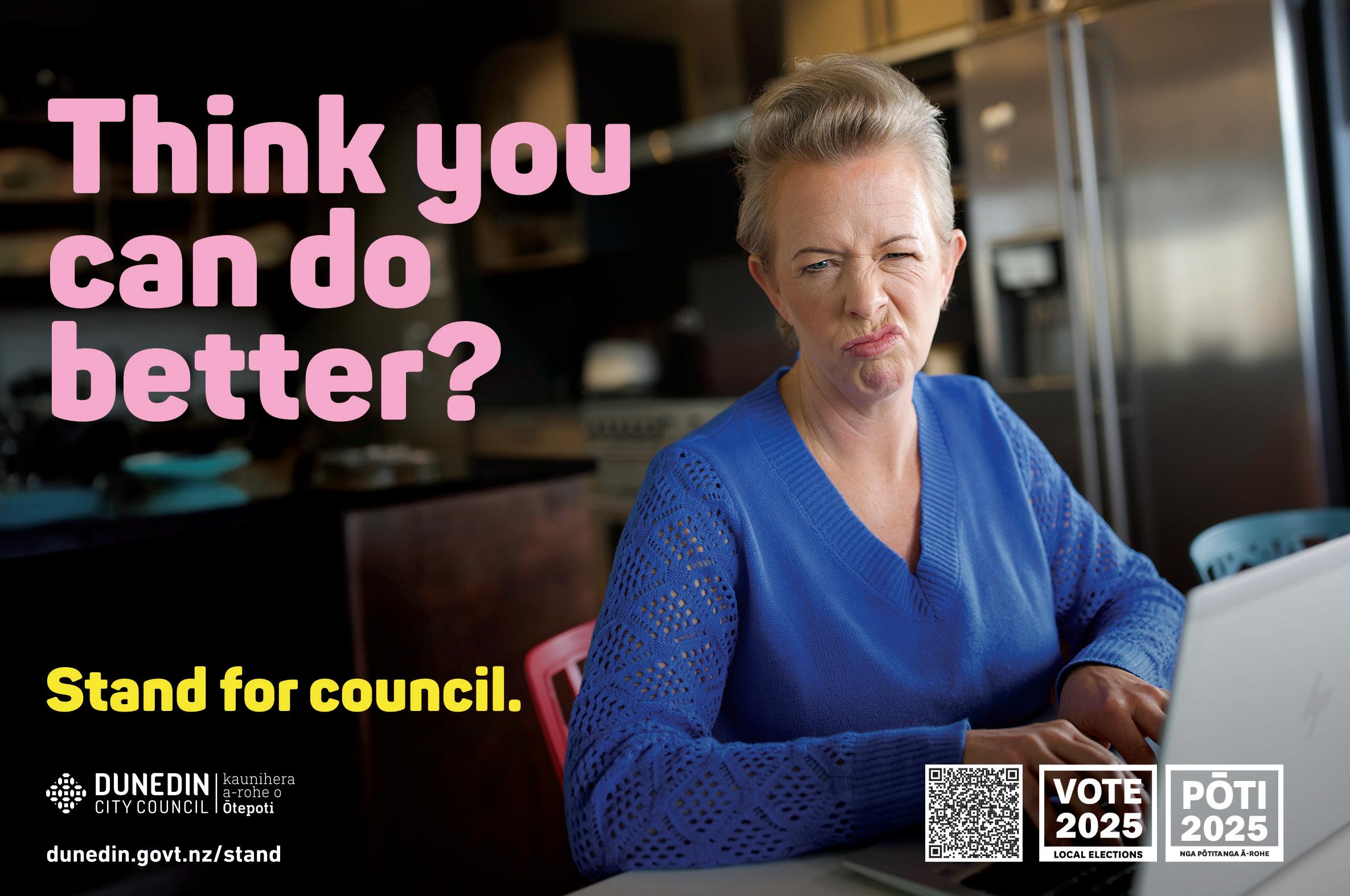
Do something this week that will leave a lasting impact for others to remember you by. The moon is drawing you away from others, but you're a social creature so whether you start a new club or graffiti half the flats on Castle St, you need to make an impact so big you'll be unforgettable.
What consumerism final boss are you: Ugg Talismans
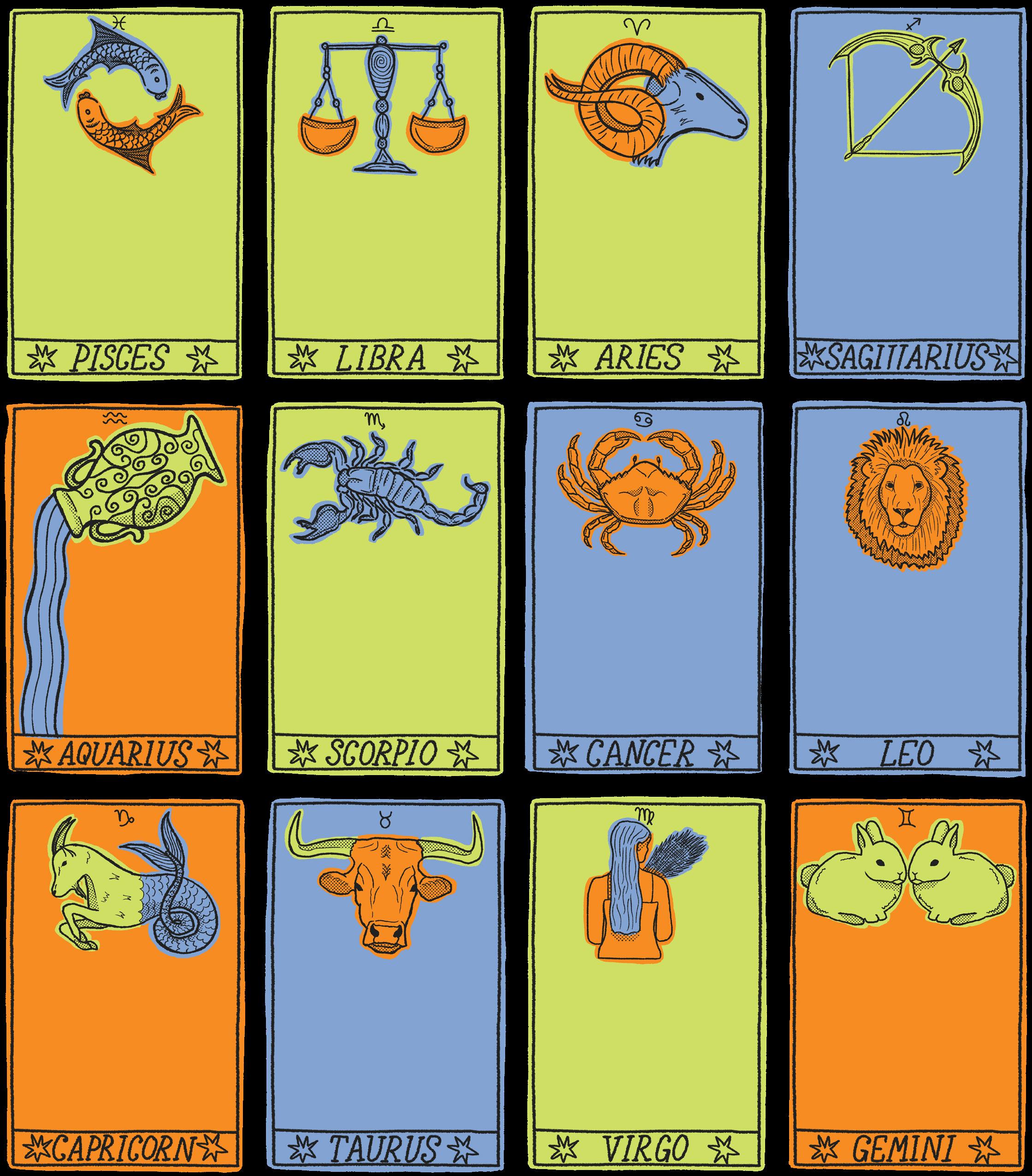
Go out and treat yourself to a drink one afternoon this week. Whether your friends come with you or you solo it, you deserve to kick your feet up and rest a little bit. You had an exhausting break and the past few weeks have been a bit of a shit show.
What consumerism final boss are you: The blue Glassons corset top
Your social calendar is full but your bank account is empty. This is going to make for a hard few weeks, so pinch those pennies and try to limit the amount of junk food runs you and your flat do. Also, the only reason you should let yourself dig into your savings is if you're going to buy a bag.
What consumerism final boss are you: Popmart blind boxes
You have cruised through the first two weeks of uni with ease. There's been no stress and no worrying. That is all about to change – get ready to lock the fuck in!
What consumerism final boss are you: Dubai chocolate making kit
Something you loved dearly and lost has found its way back to you recently. Make sure to hold on tight and not let go because you have been losing things a lot lately and you don't have the mental strength to get through another loss right now.
What consumerism final boss are you: Temu flat decorations
You felt a spark with someone a few weeks ago, but now they are ghosting you. Don't worry, it was them not you, they really wish they were in the right headspace to get to know you better but maybe they might be soon!
What consumerism final boss are you: Kmart dupes
You are that bitch. People have been trying to tear you down but just know that everyone you meet has been loving your energy and wants to get to know you more. Be confident that your presence is wanted and you're not just someone who gets the pity invite.
What consumerism final boss are you: Amazon 50pk of scrunchies from the VSCO era
You have been making your own sweet, sweet music lately and people are finally starting to appreciate the sound. Not everyone is going to like the message you're trying to get across, but those who like it are your people.
What consumerism final boss are you: Thrifting clothes you don't need
Your sleep schedule has been fucked up by one too many big nights out. Make sure you're getting enough fuel in your tank and consider eating a vegetable at least once a day. When that inevitably doesn't happen, at least try to eat something green – whether that is a matcha-flavoured cheesecake or a green Fruit Burst is up to you.
What consumerism final boss are you: Shein haul
Remember to take care of your surroundings, whether that is actually vacuuming for once or remembering to feed your plants a little water. Make your room your sanctuary and maybe it will help with that unsettled feeling in your tummy.
What consumerism final boss are you: Overreliance on Afterpay services
You have been going out and getting just a little bit too fucked up. Try reining it back and respecting that your friends want to have at least one night this year where they don't have to carry you home and wash the vomit off of your outfit, like they have had to do many times this year.
What consumerism final boss are you: Buying the entire Apple ecosystem
Clean the black mould that is growing in your shower. If you just spray a little Wet & Forget mould killer, that will likely do wonders for the health of you and all your flatmates. No one deserves to be sick all winter just because you couldn't be bothered doing your chores.
What consumerism final boss are you: Stanley Cup collections

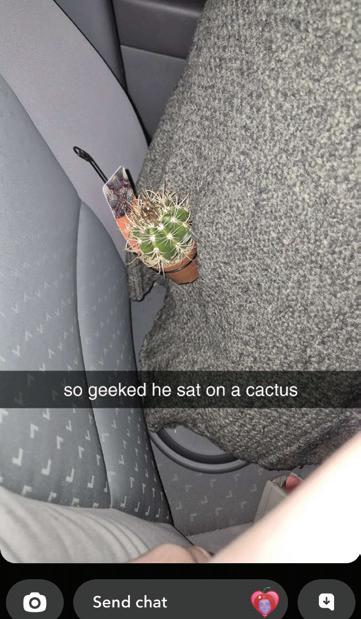
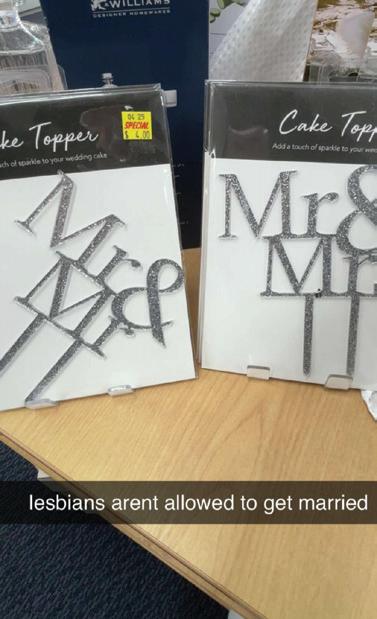
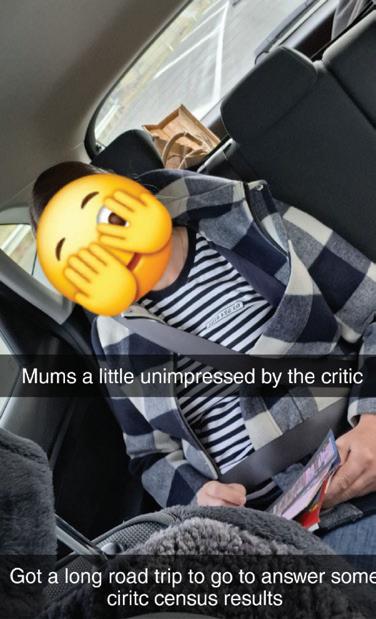
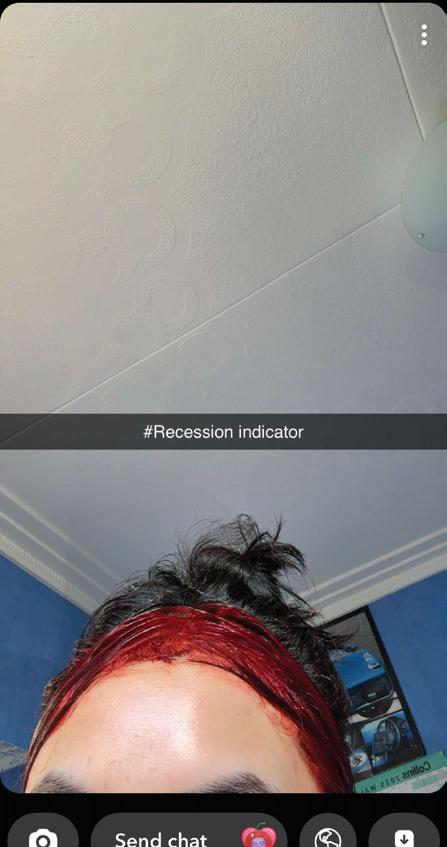
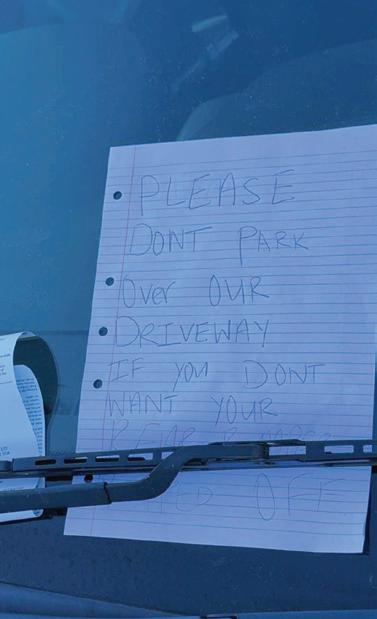
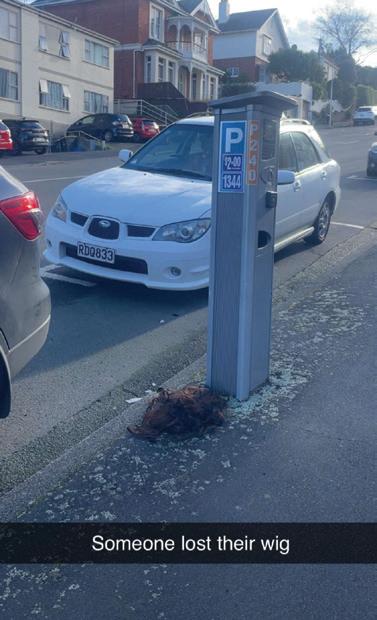

With Liam out of the office for the day, it was time for me to finally shine. That’s right, your favourite Administrative Vice-President (me) stepped up to the presidential plate to take on the hefty responsibilities of OUSA’s top job.

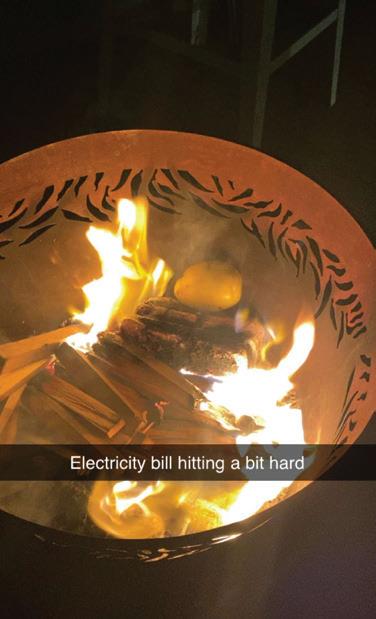
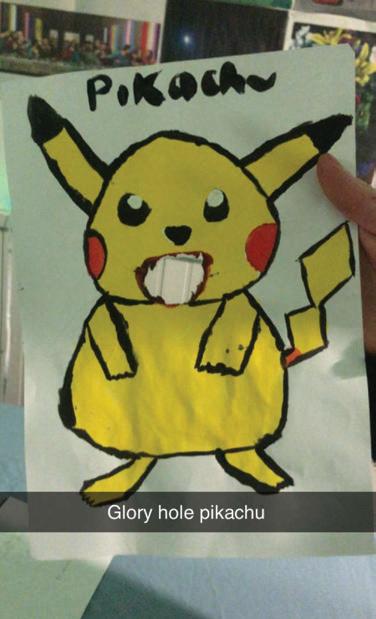
Honestly not too much was different on my Friday as President. The amazing Donna Jones (Association Secretary) gave me a regal welcome that set the bar way too high for the rest of the day. There was a printed sign with my name on it, blue-tacked over Liam’s name, marking my temporary dominion over the OUSA empire. A couple of ‘Madam Presidents’ here and there. The power went immediately to my head.
Things I wished had happened during my presidency:
• More curtsying
• Some sort of commemorative cake
• A crown Things that actually happened:
• I sat in Liam’s chair (and changed the settings)
• I did my normal duties as AVP
• No one really knew that I was President
Overall I’d rate it a 7/10. Turns out being President for a day is mostly just symbolic unless you really try to stage a coup, which (don’t tell Liam) I did consider. Would I do it fulltime? Probably not. Too much real work and not nearly enough cake.
Still, would highly recommend. You get treated like royalty, people are nicer to you, and you get a door with an office that you can shut on people. Living the life of luxury, really.
Amy Martin
Admin Vice President / Acting Madam President


Sexual harm prevention advocacy group Thursdays in Black and Critic Te Ārohi are inviting survivors to share their story in a survey on the management and prevalence of sexual harm on campus. Scan the QR code or email tibwiww25@gmail.com by August 11th
